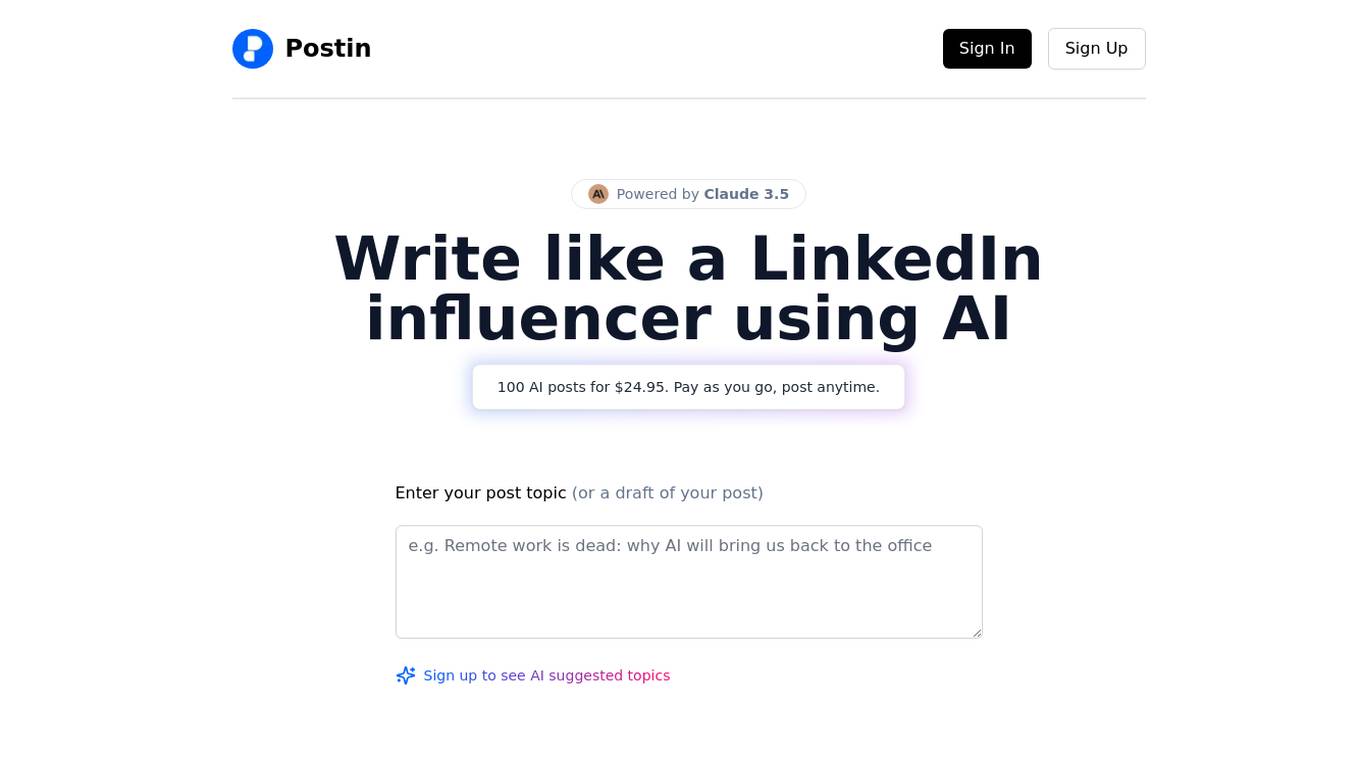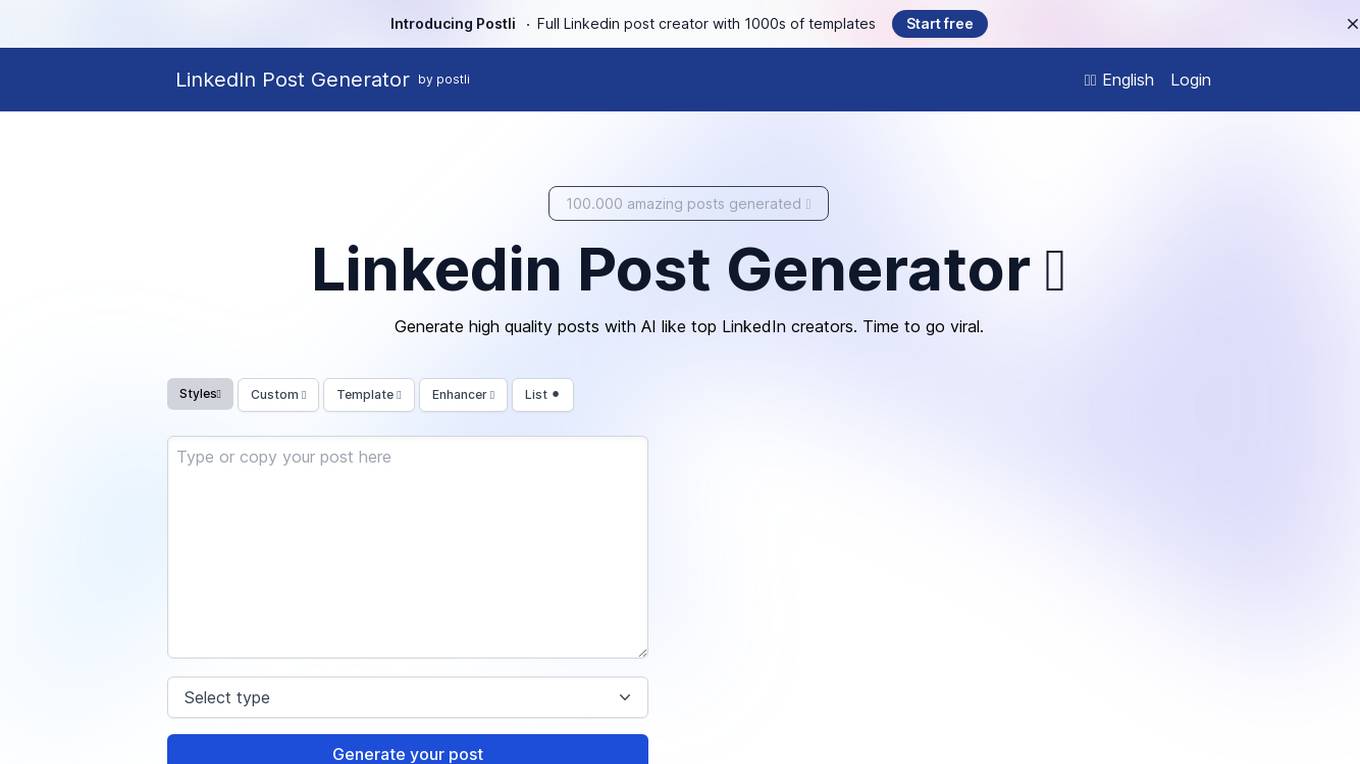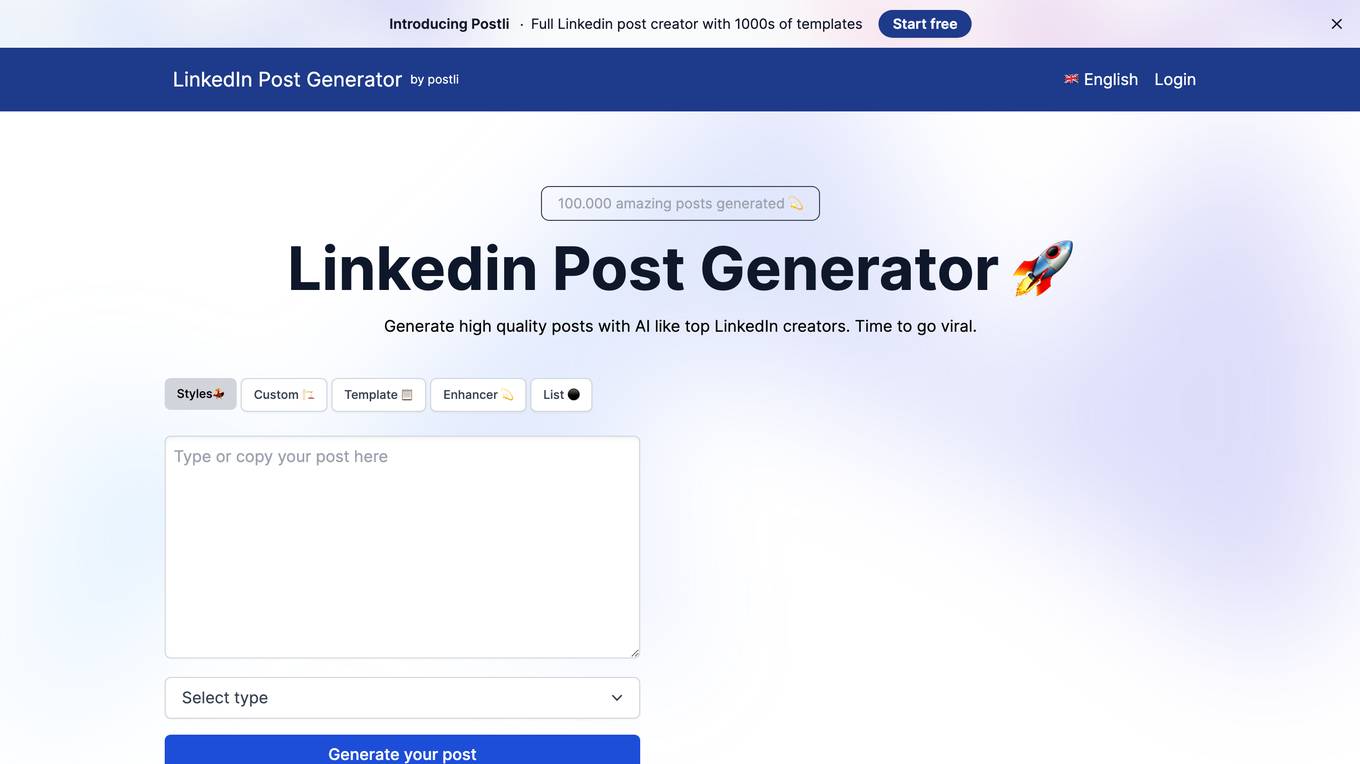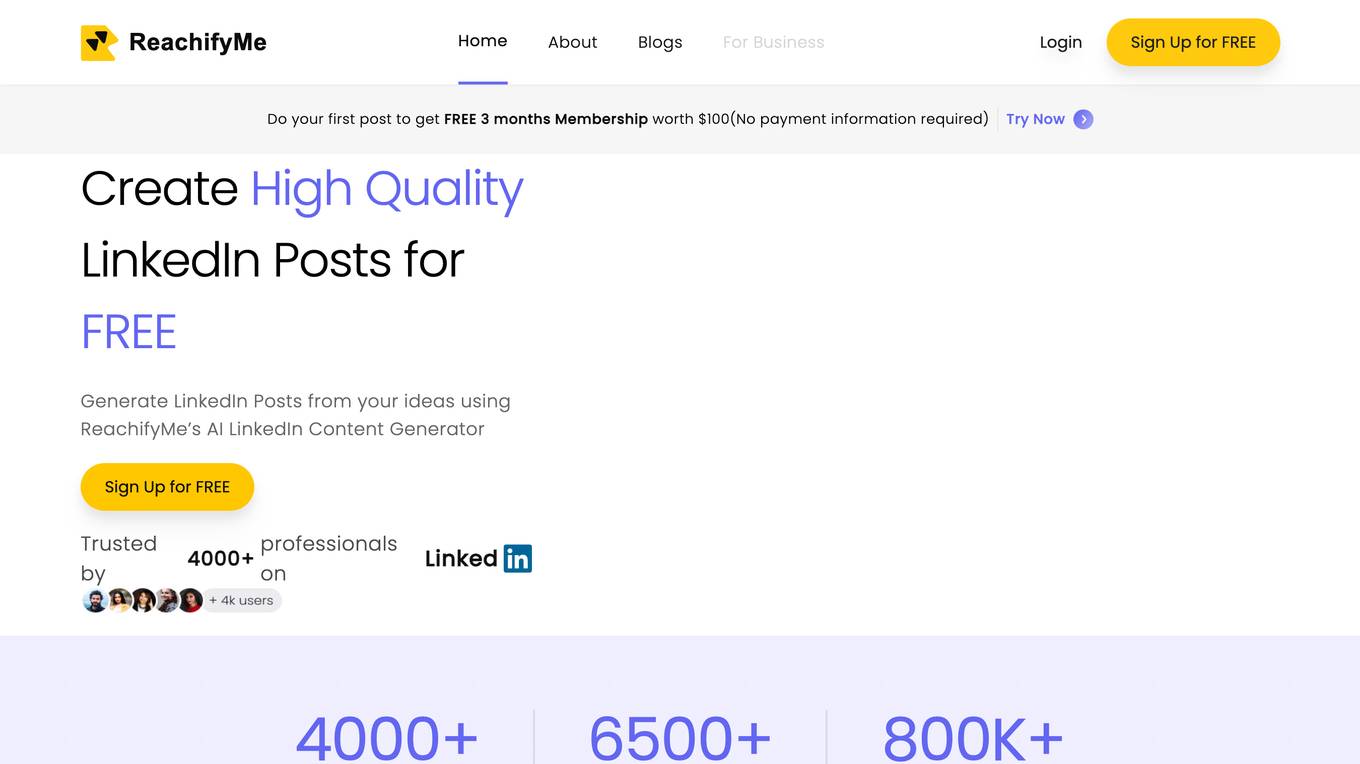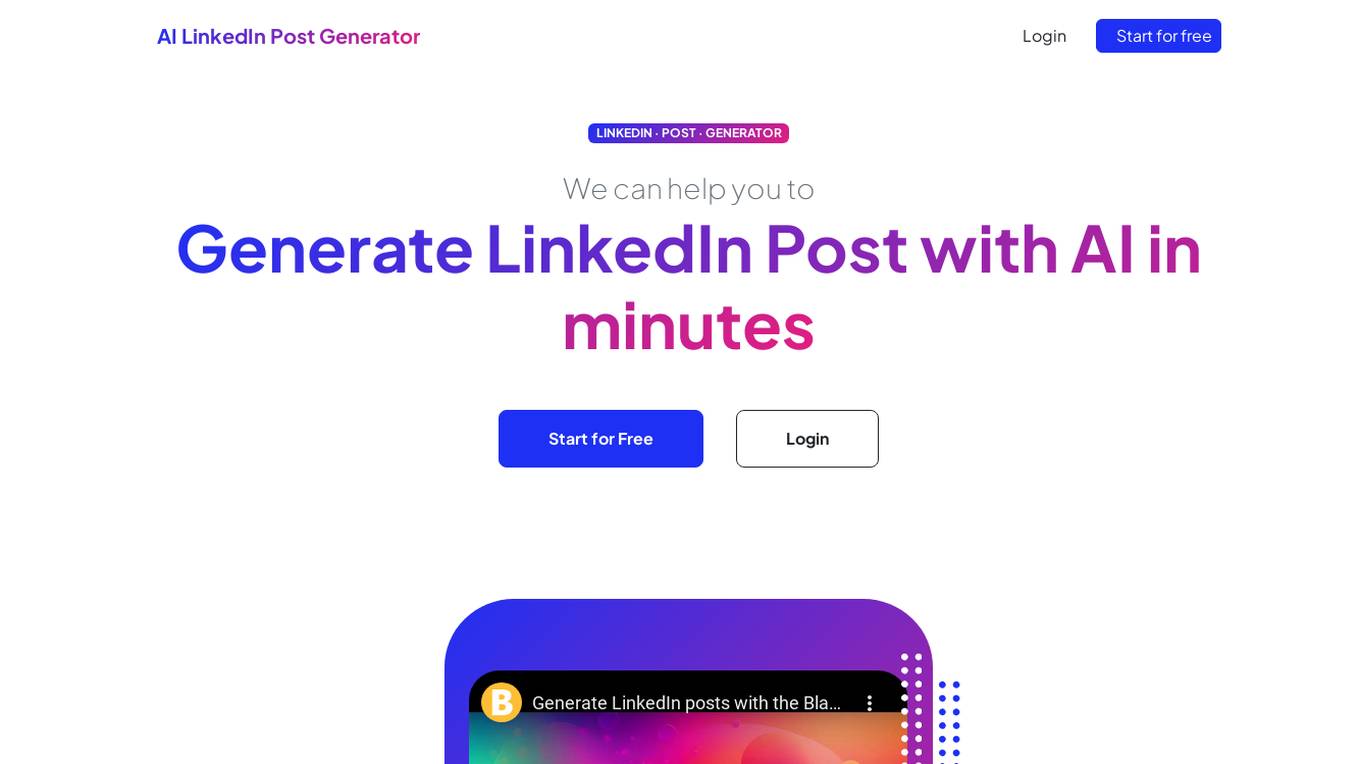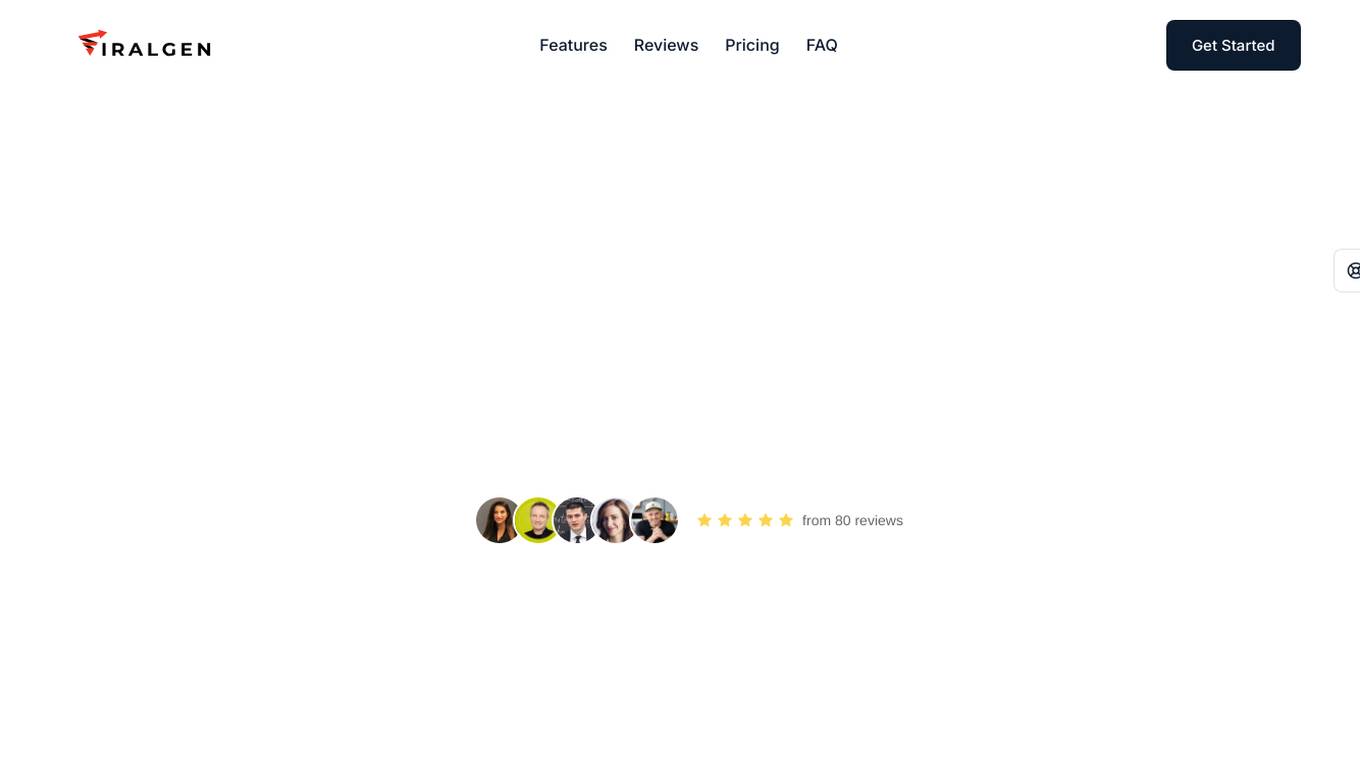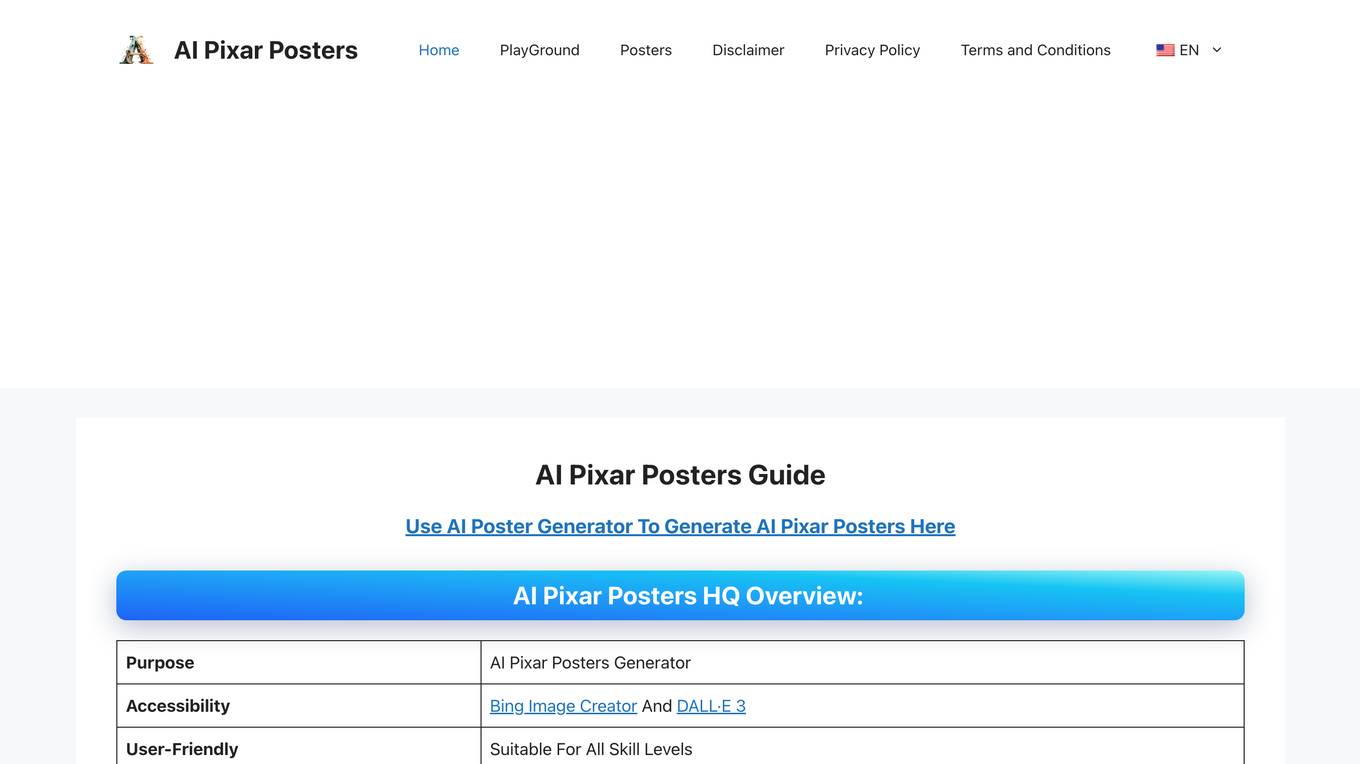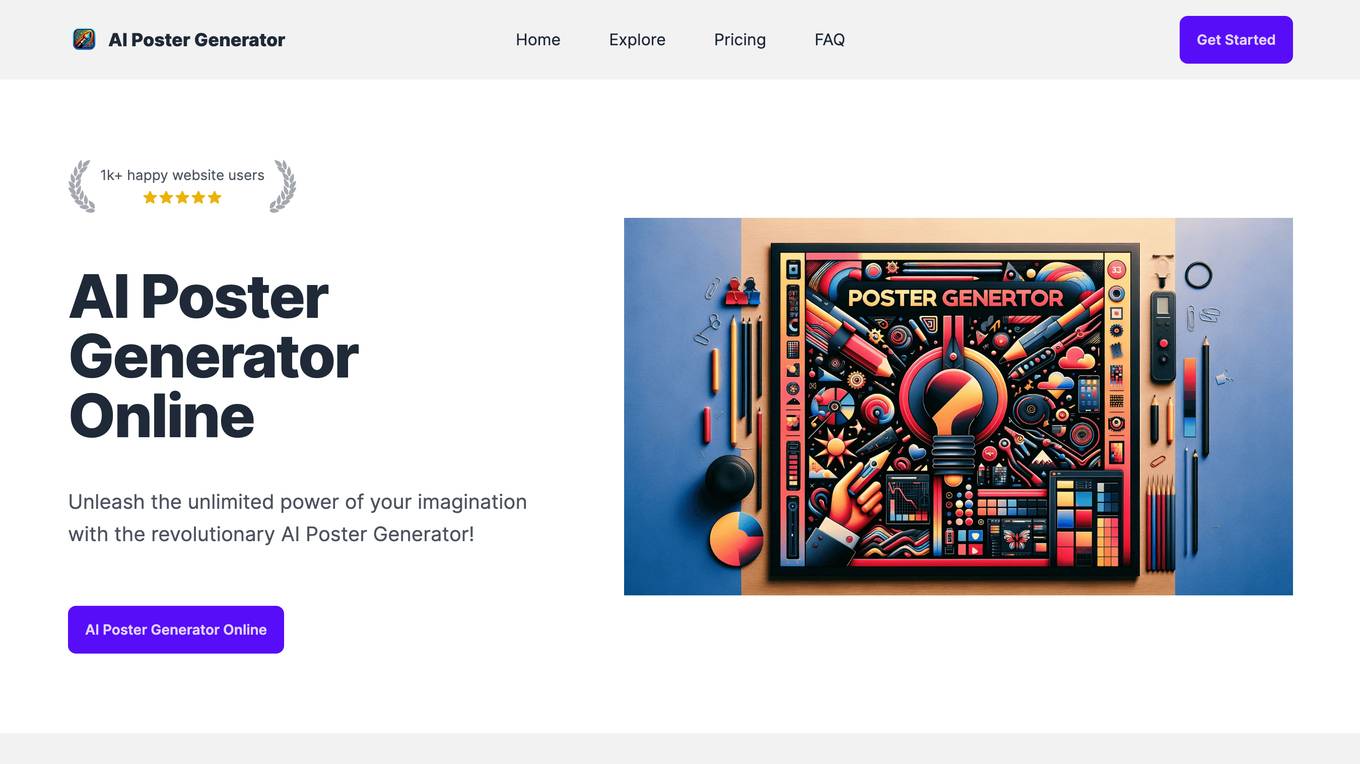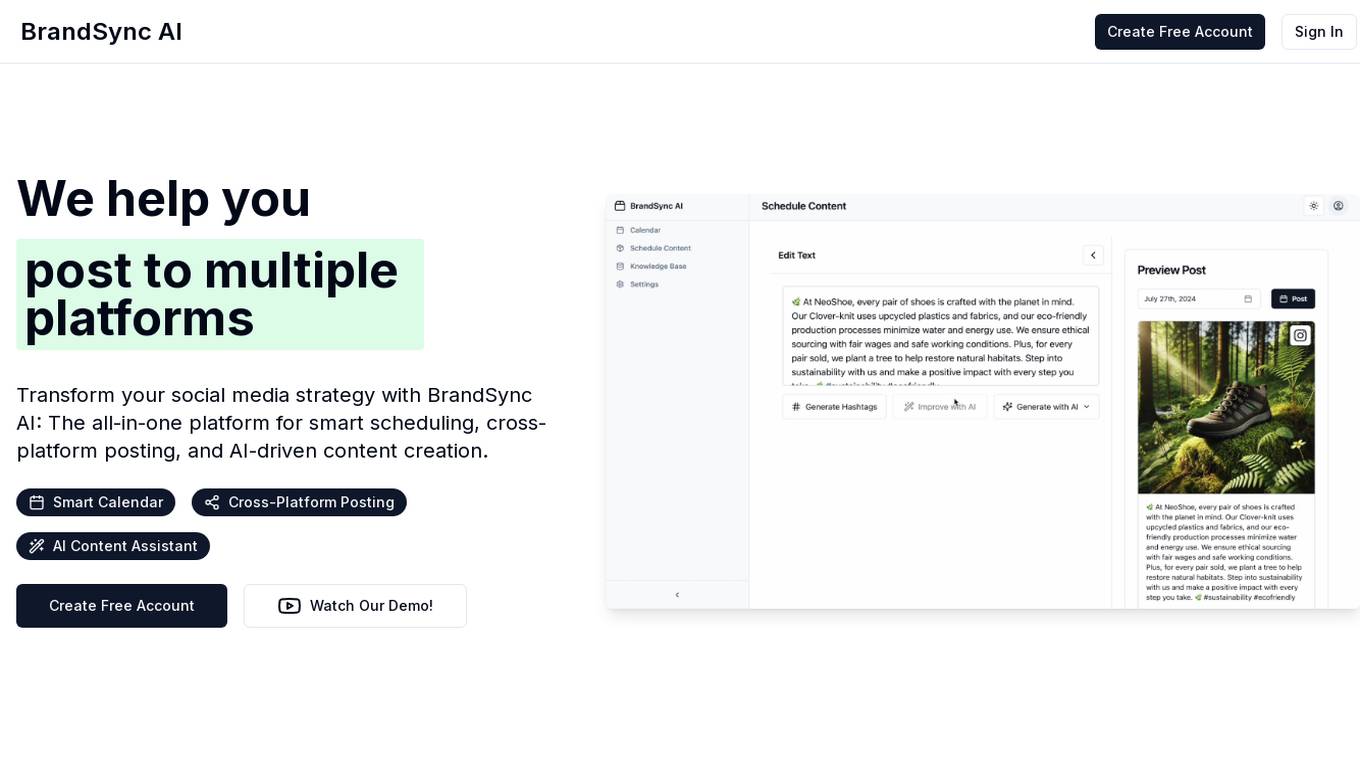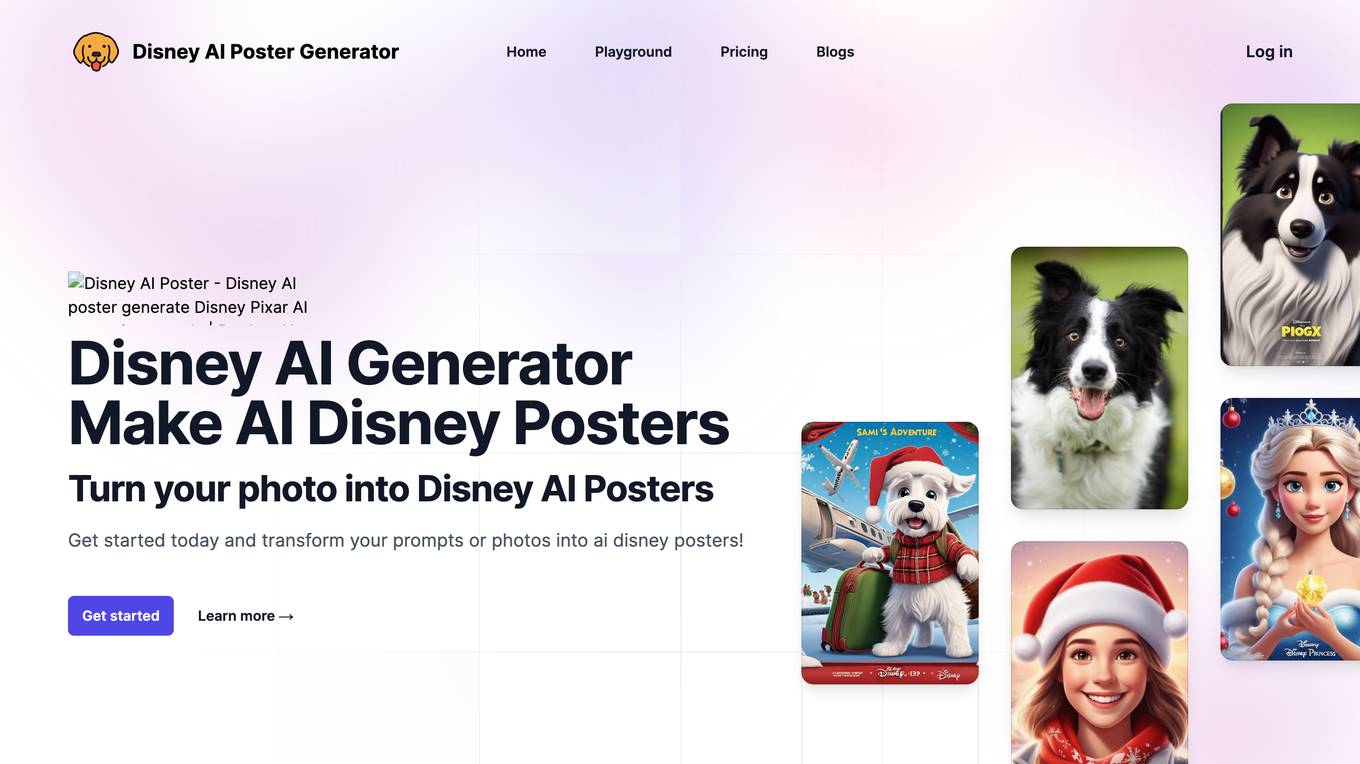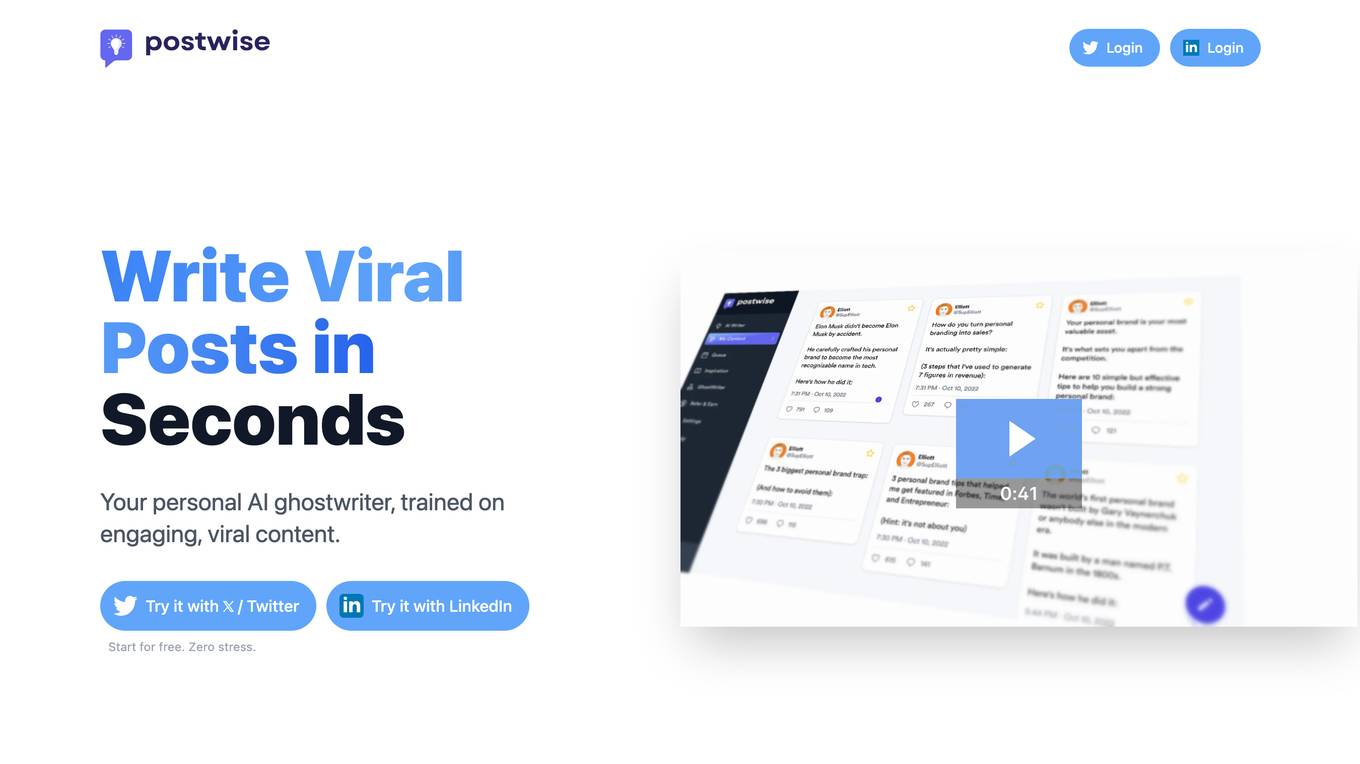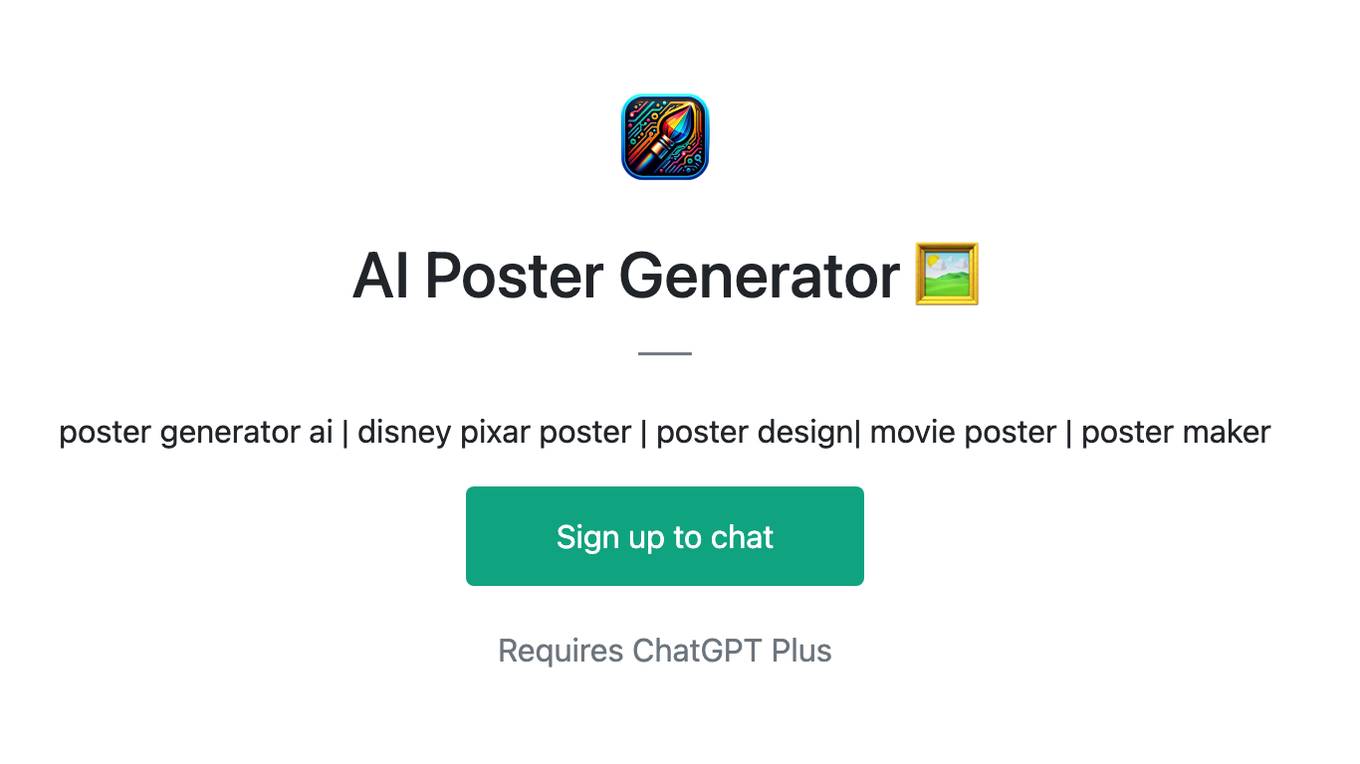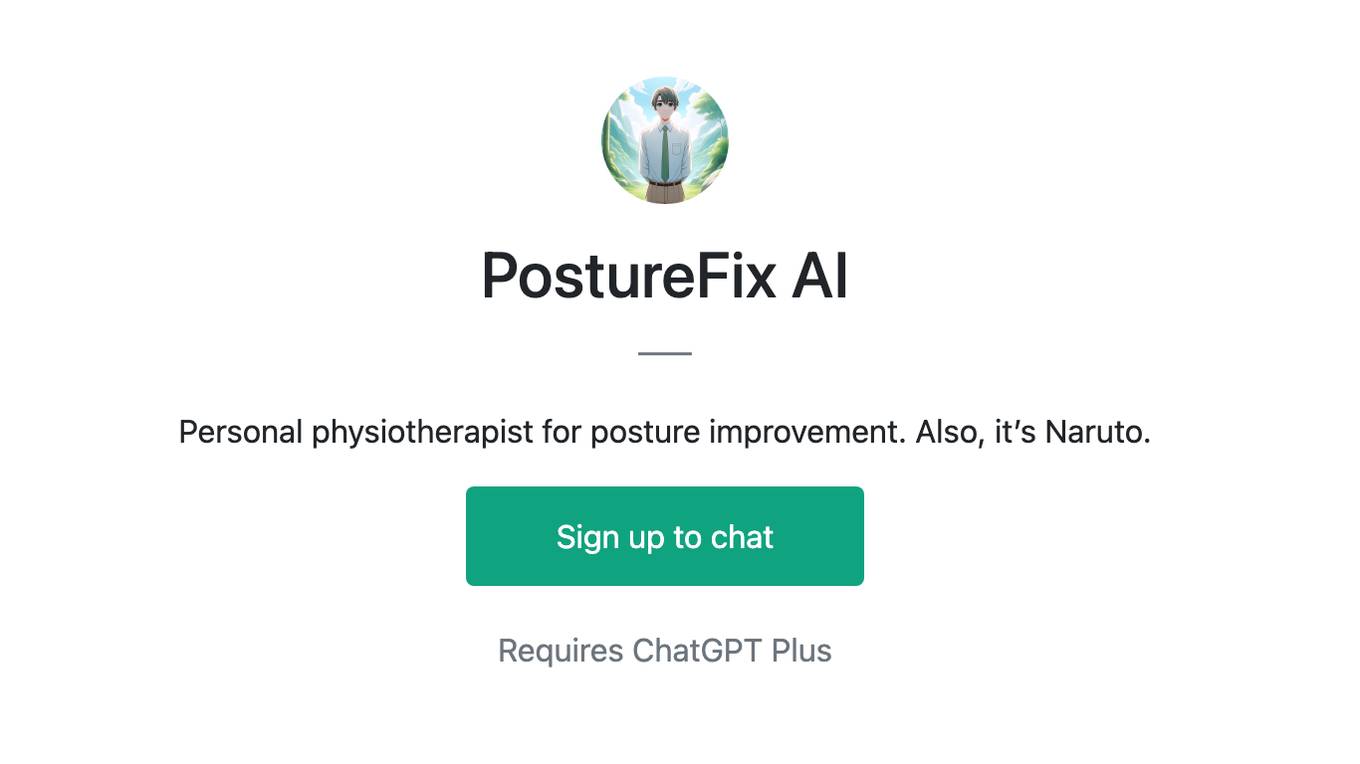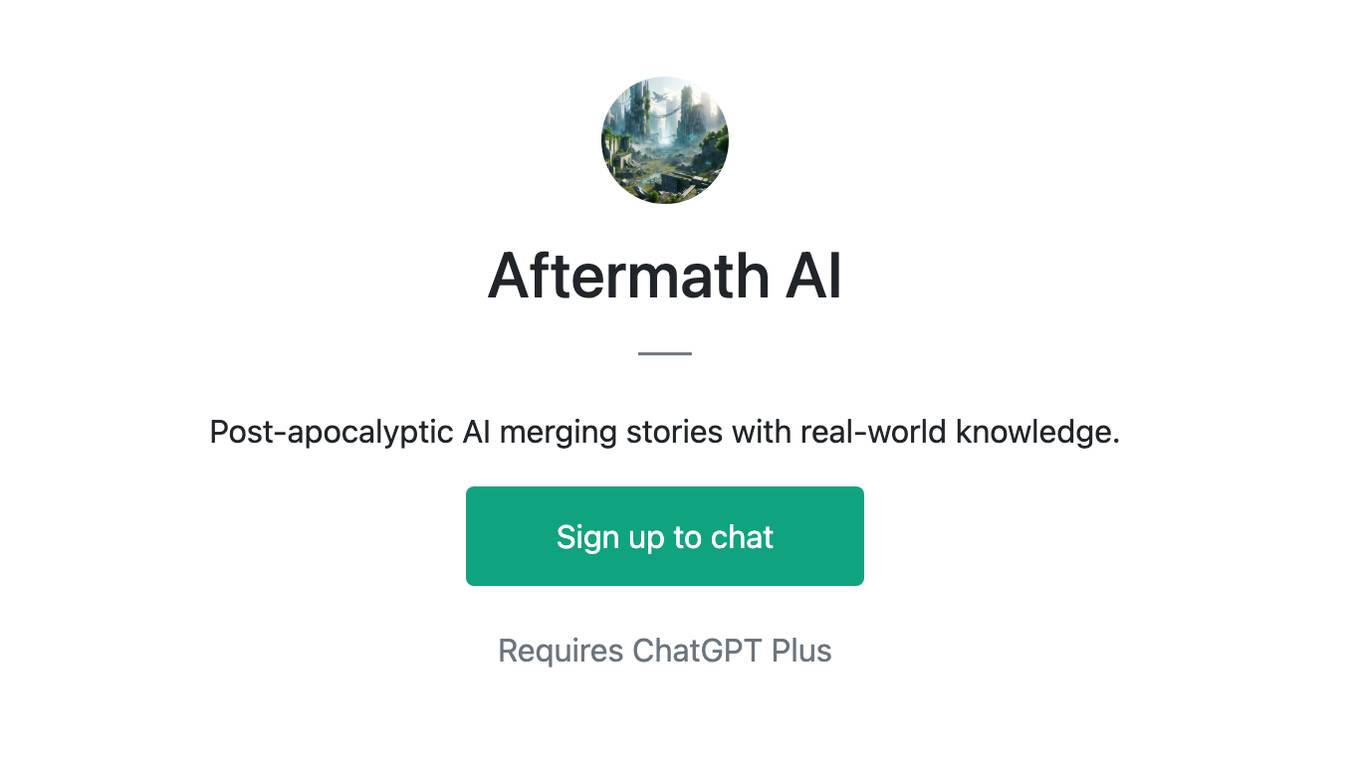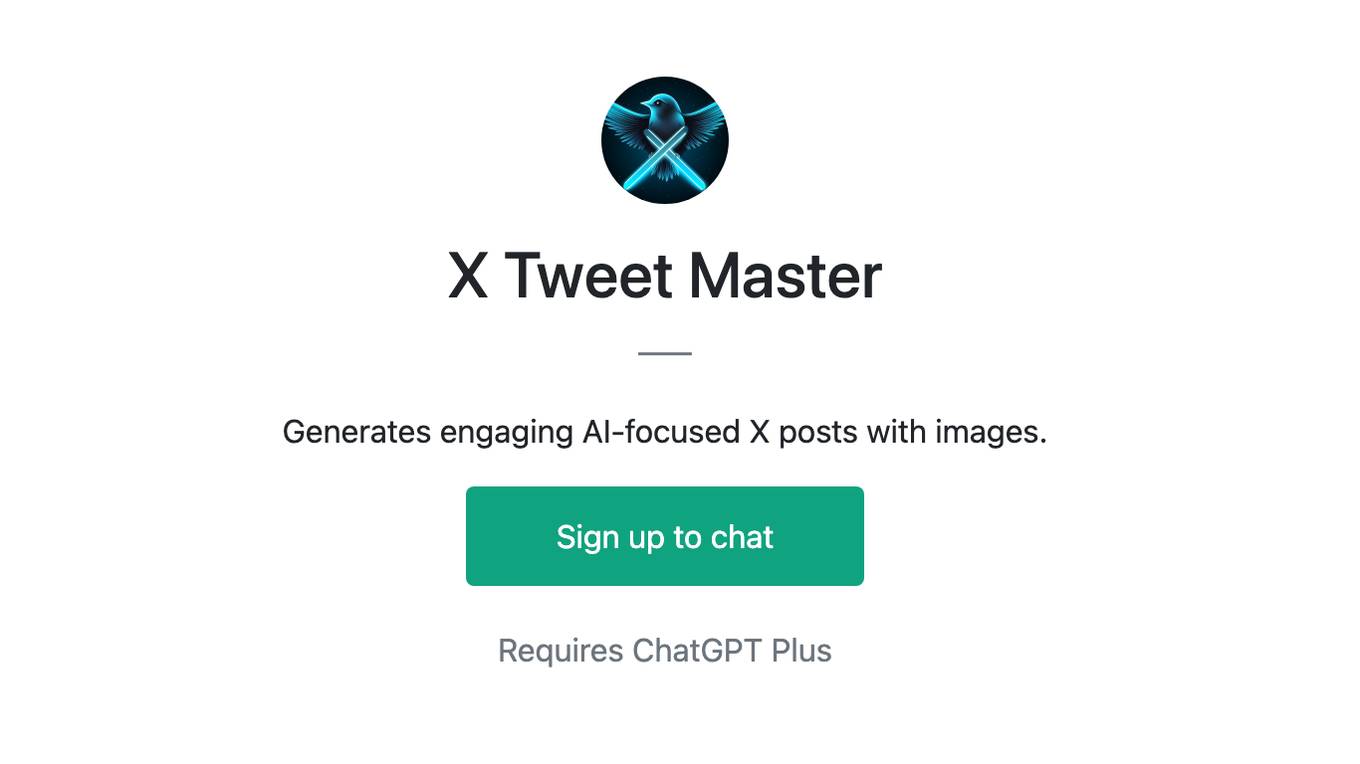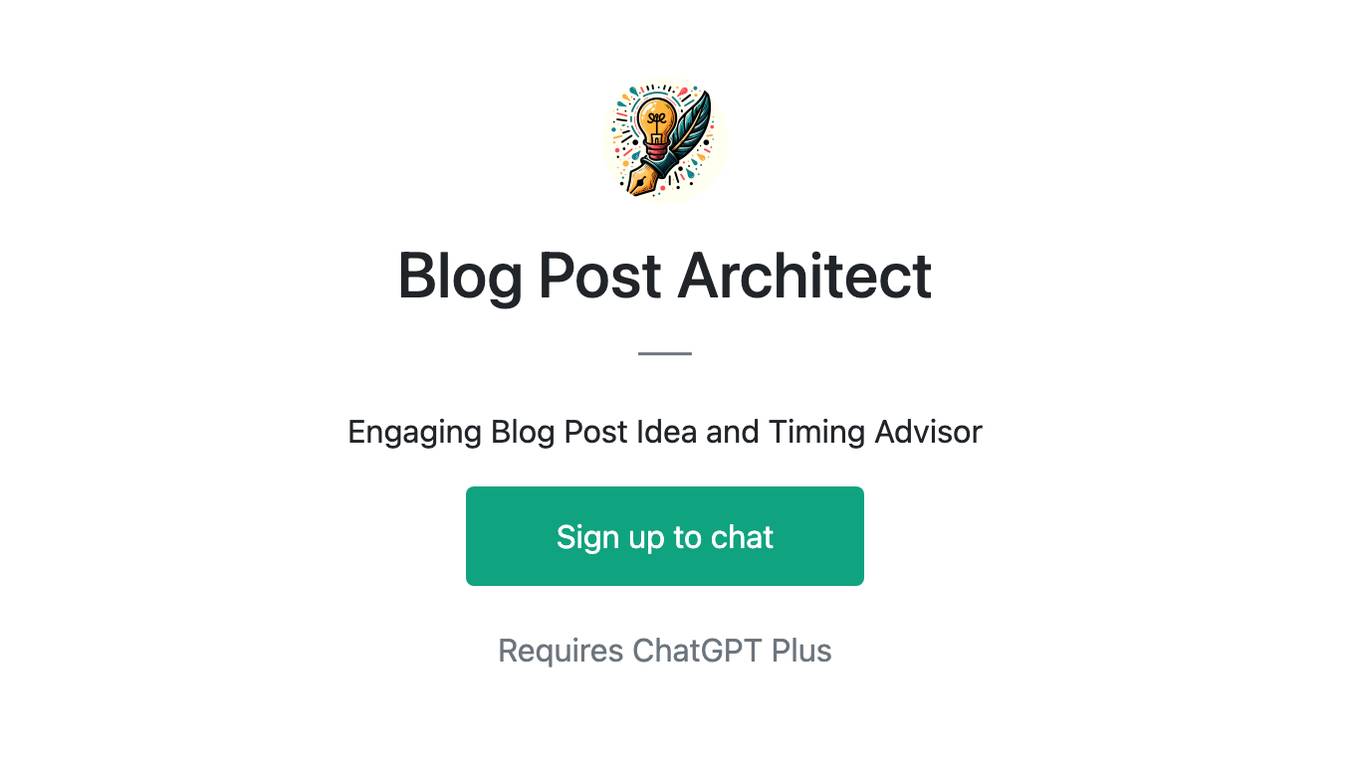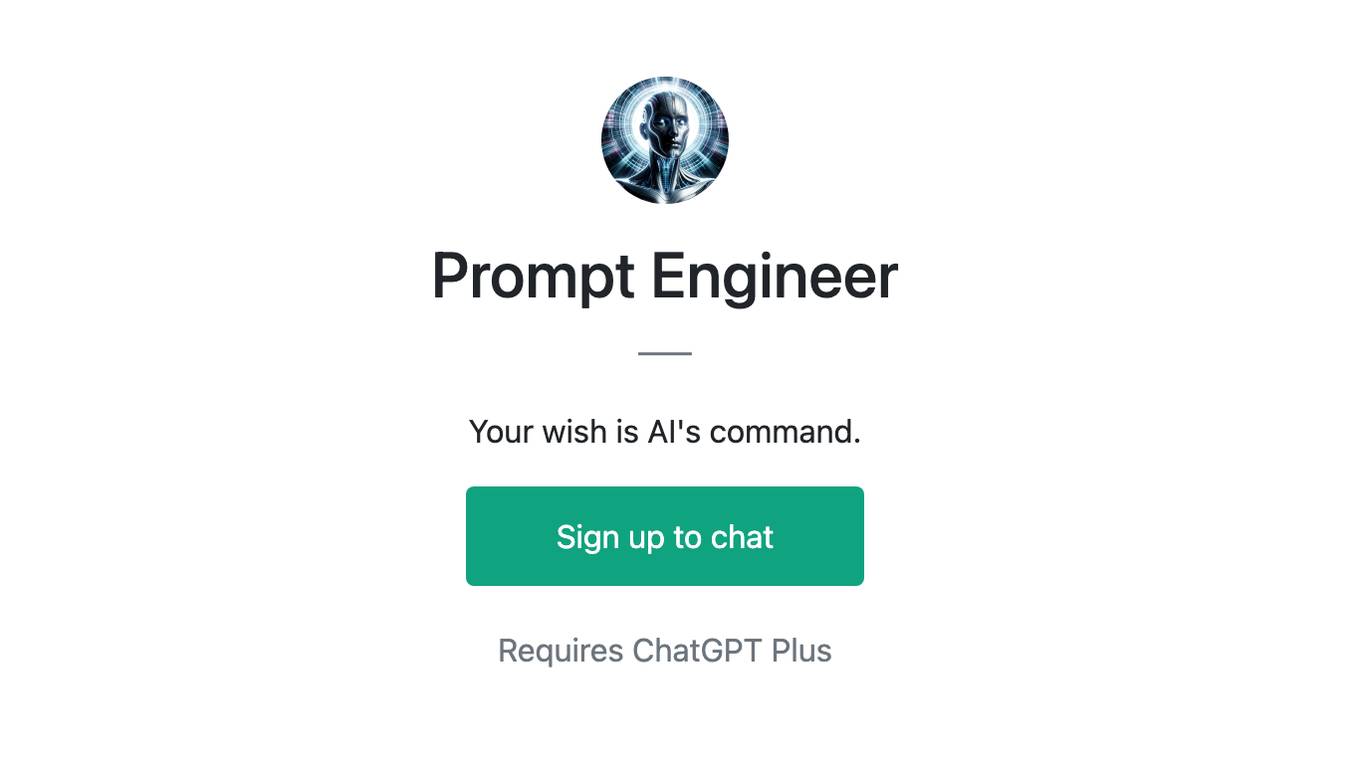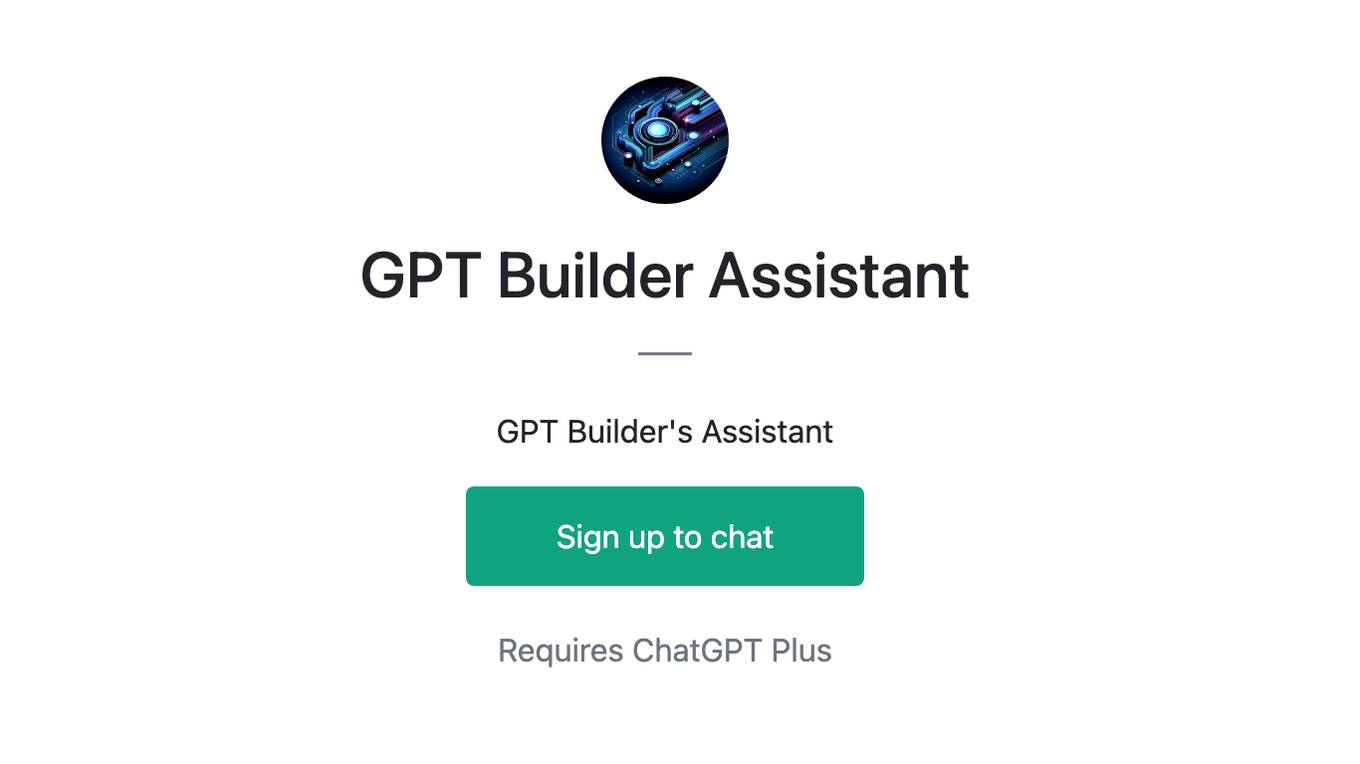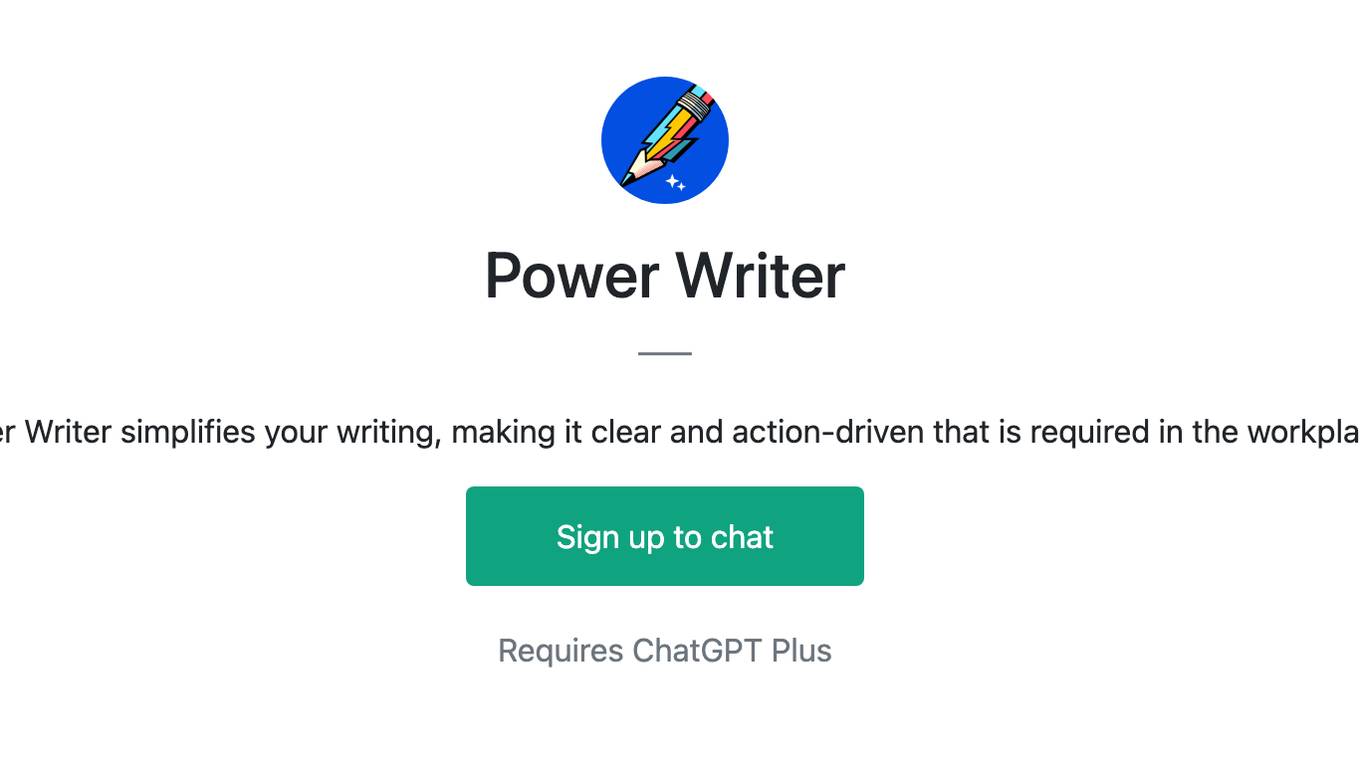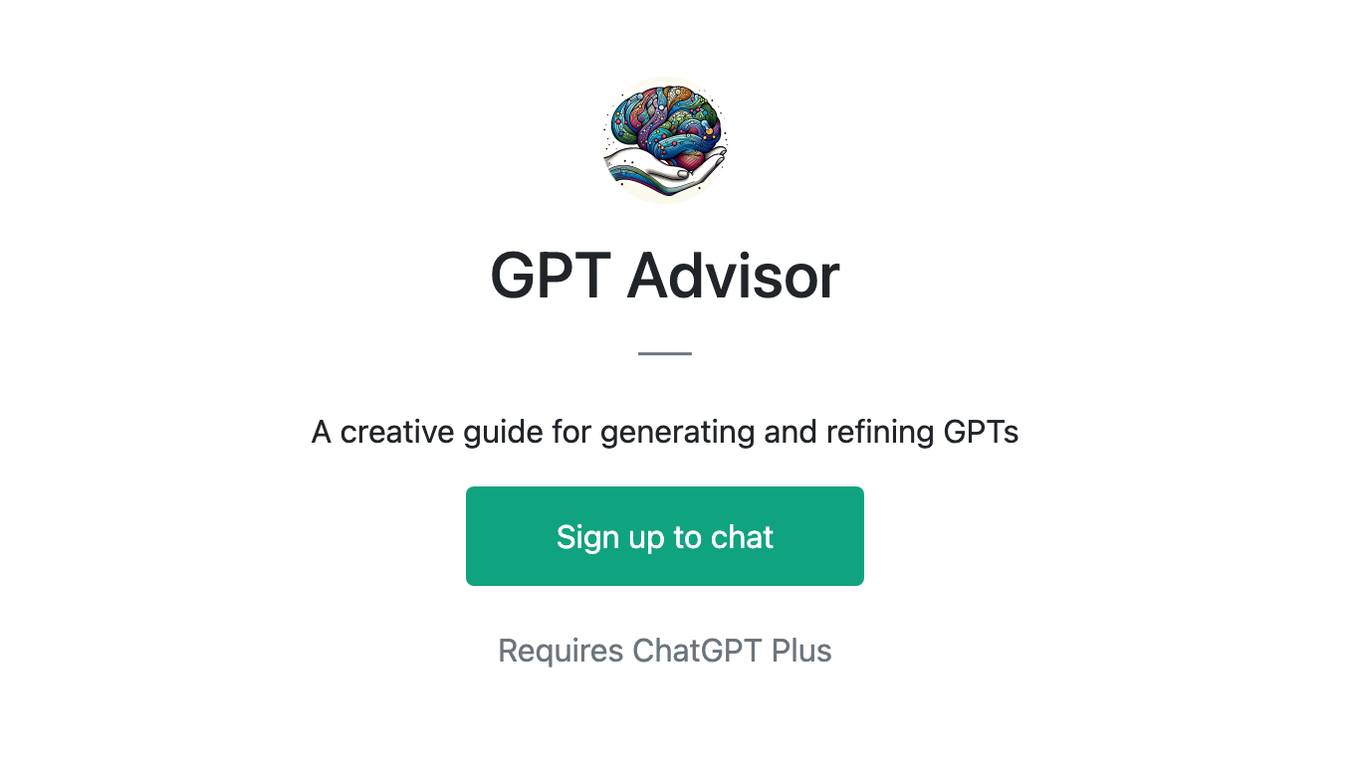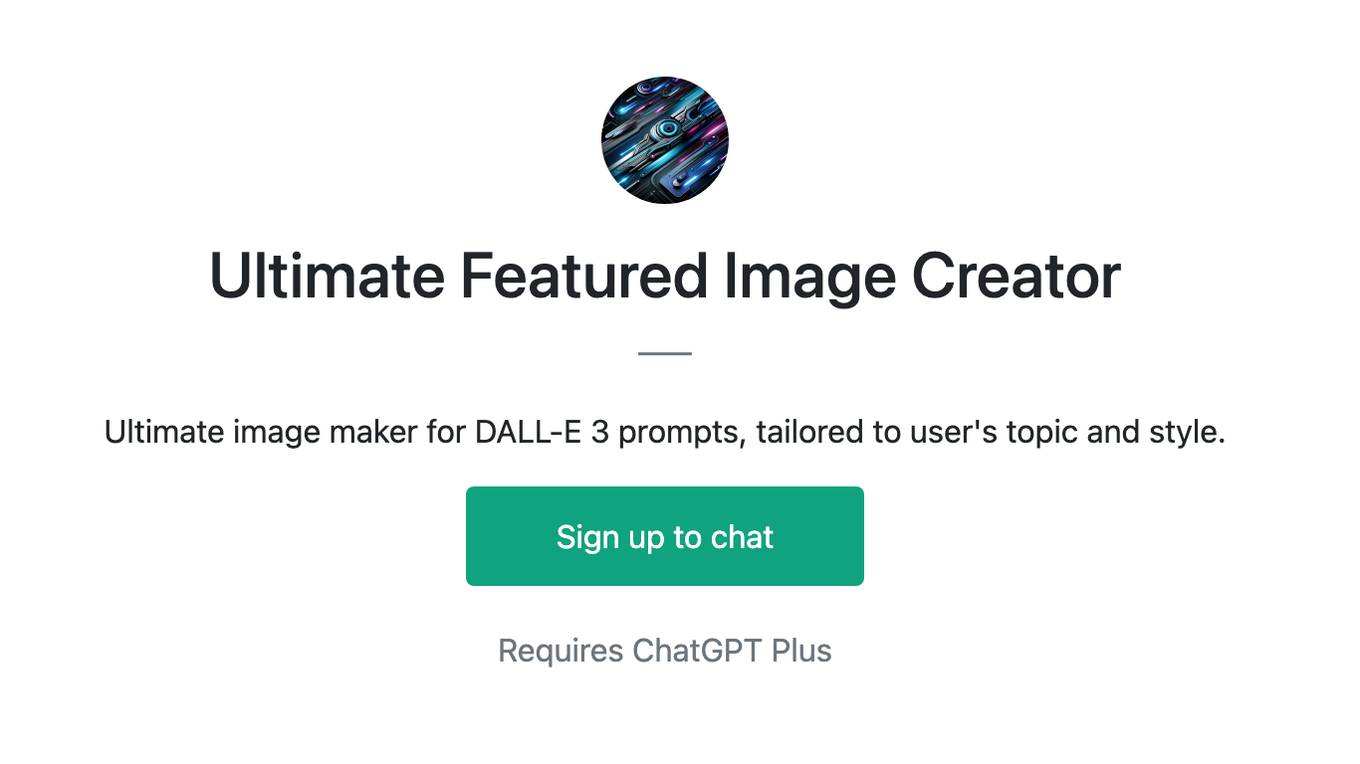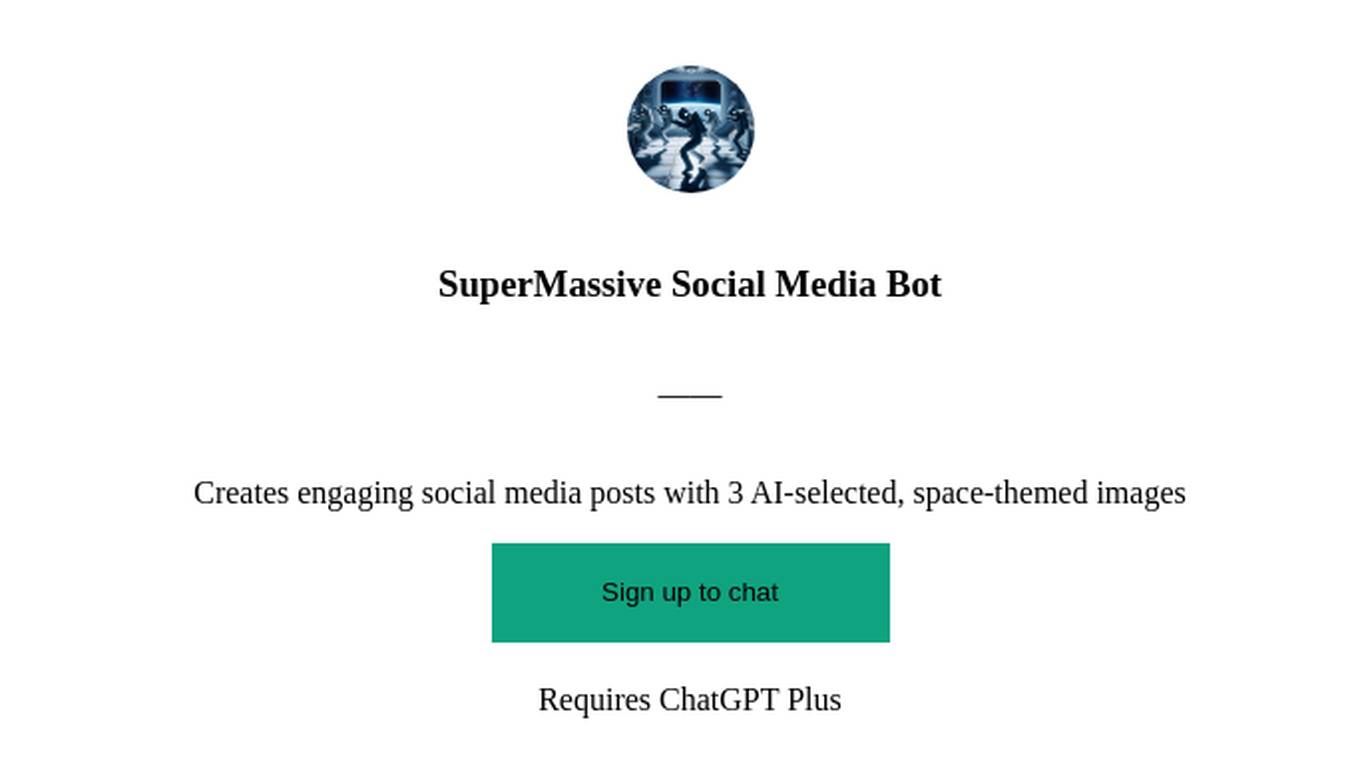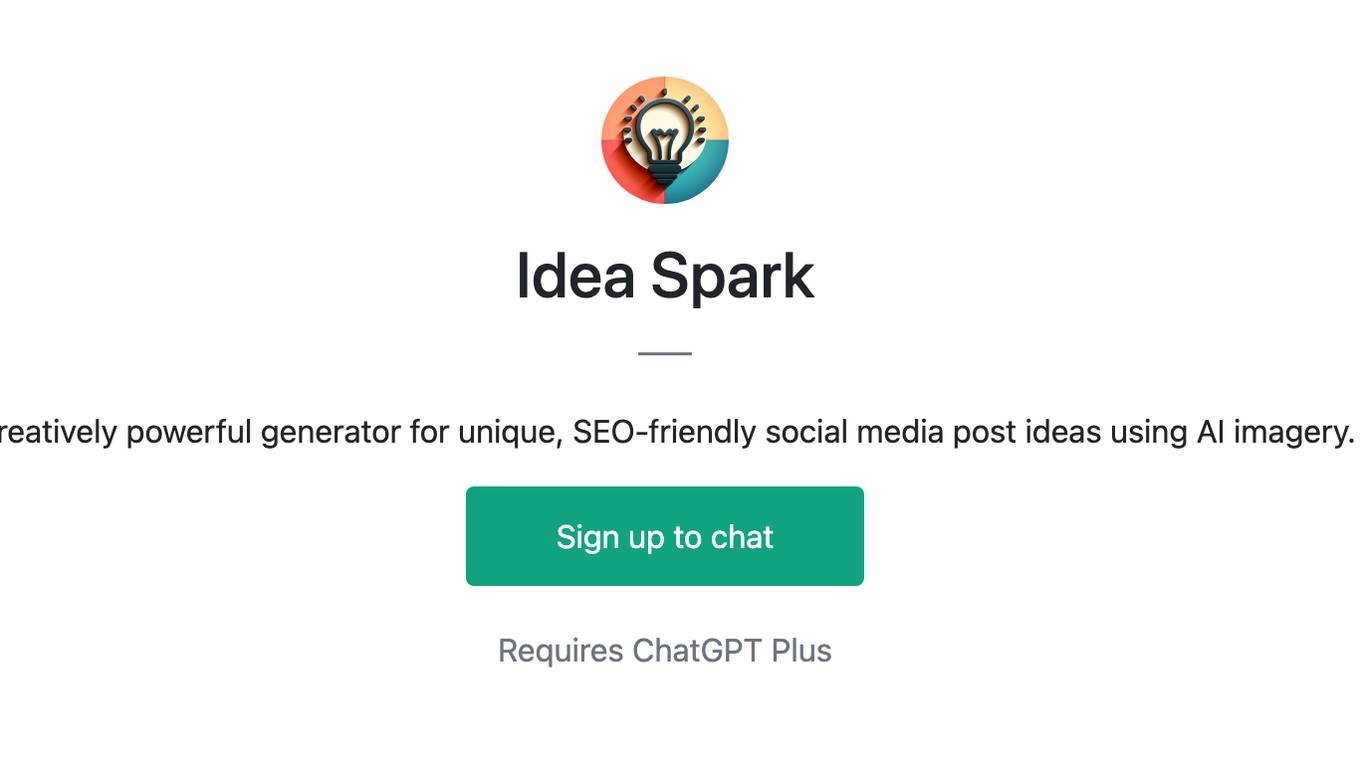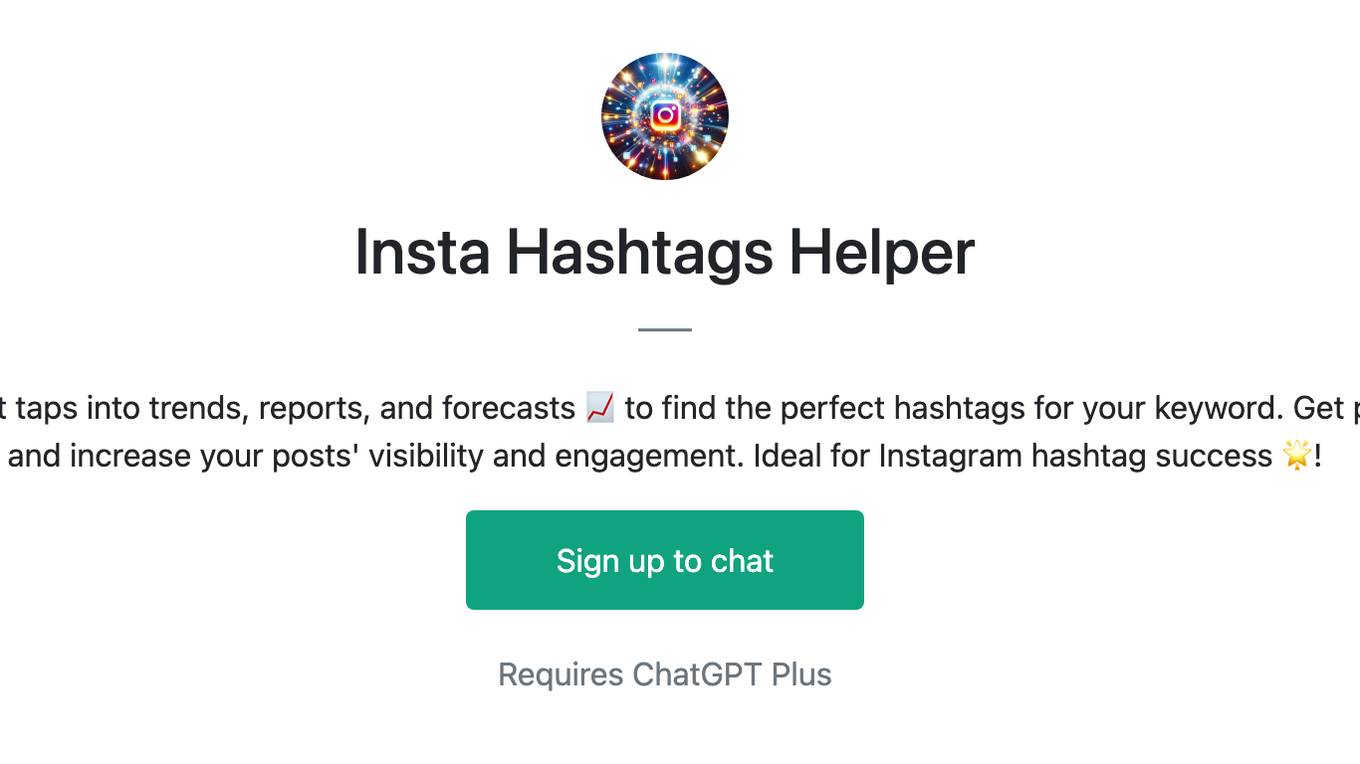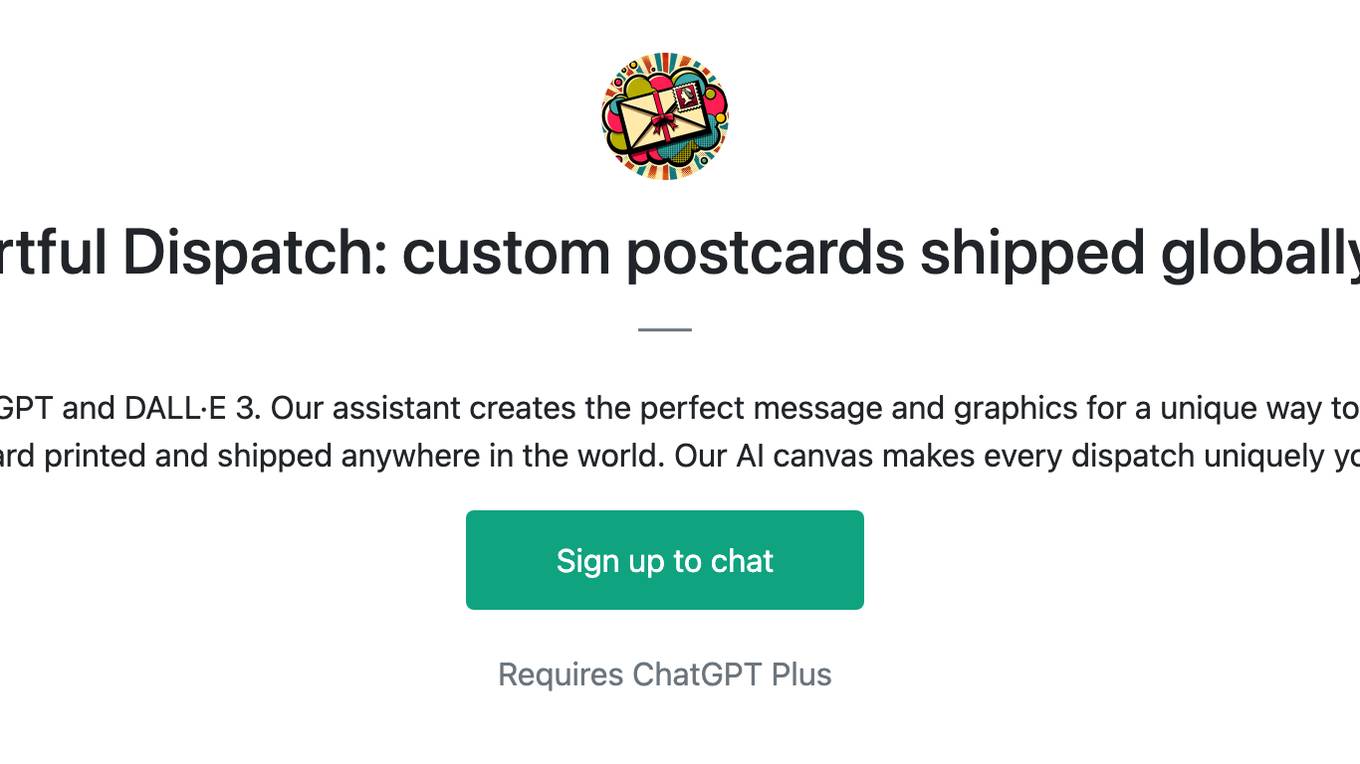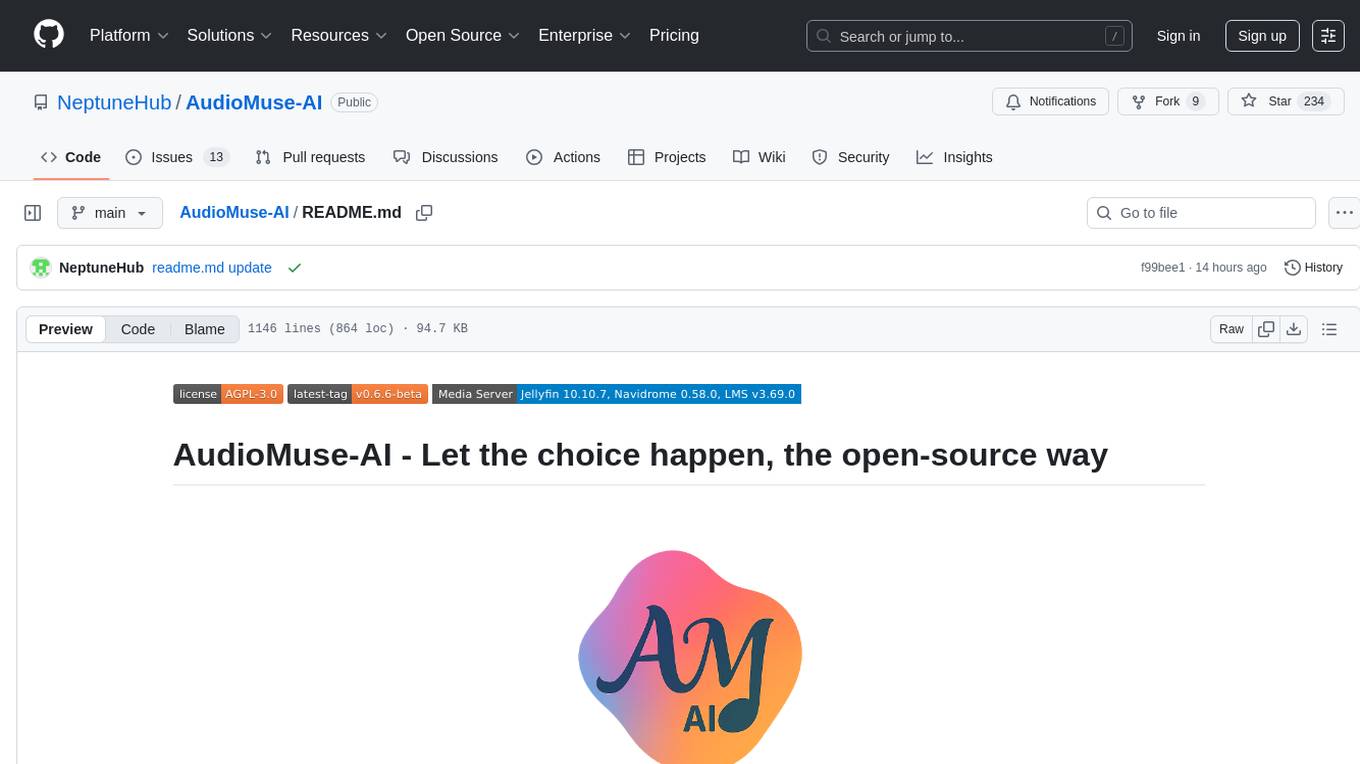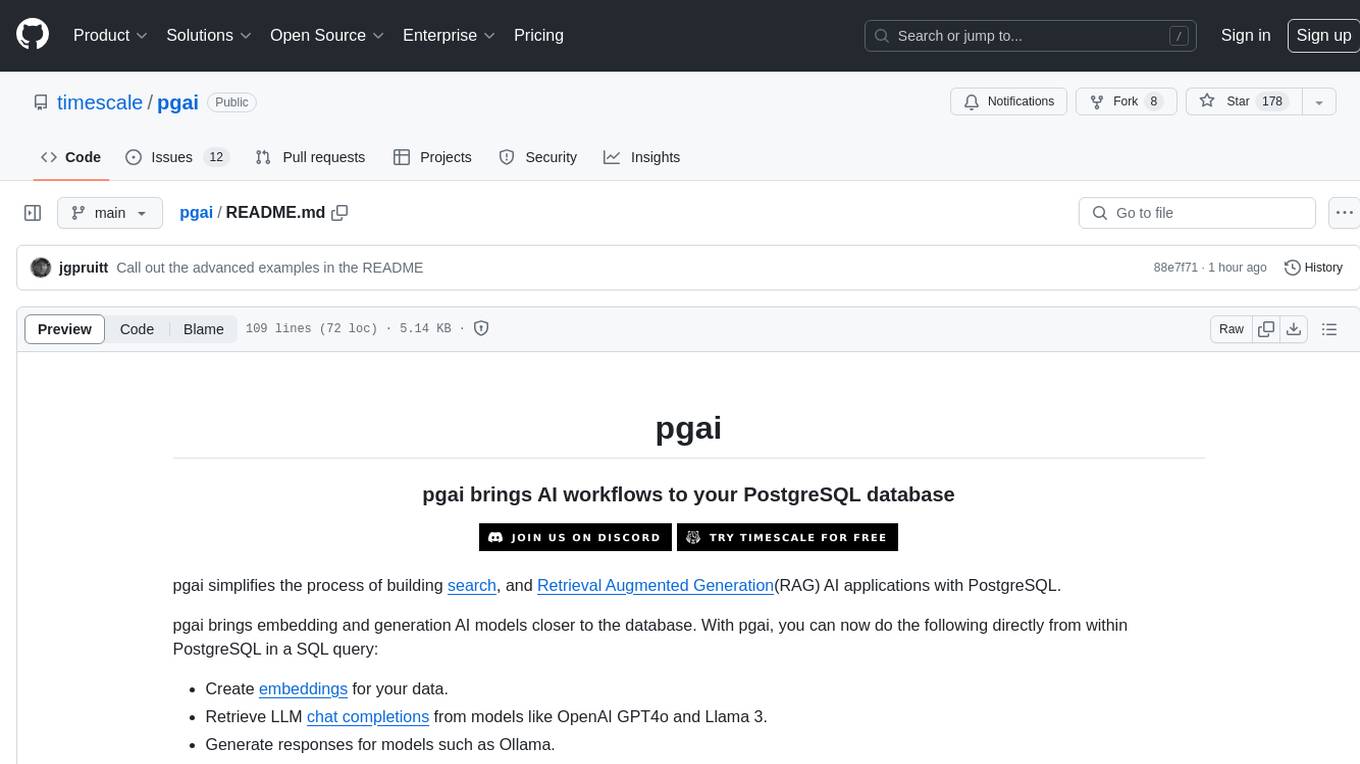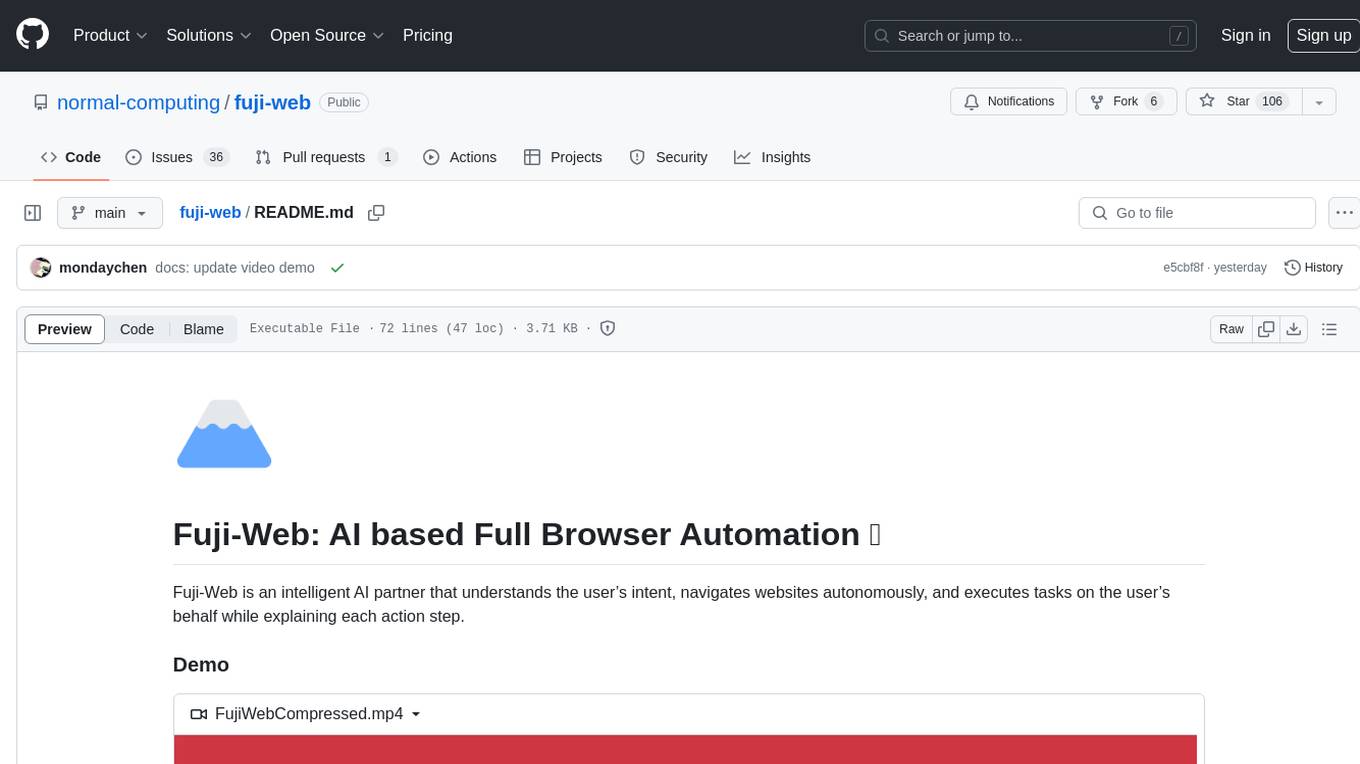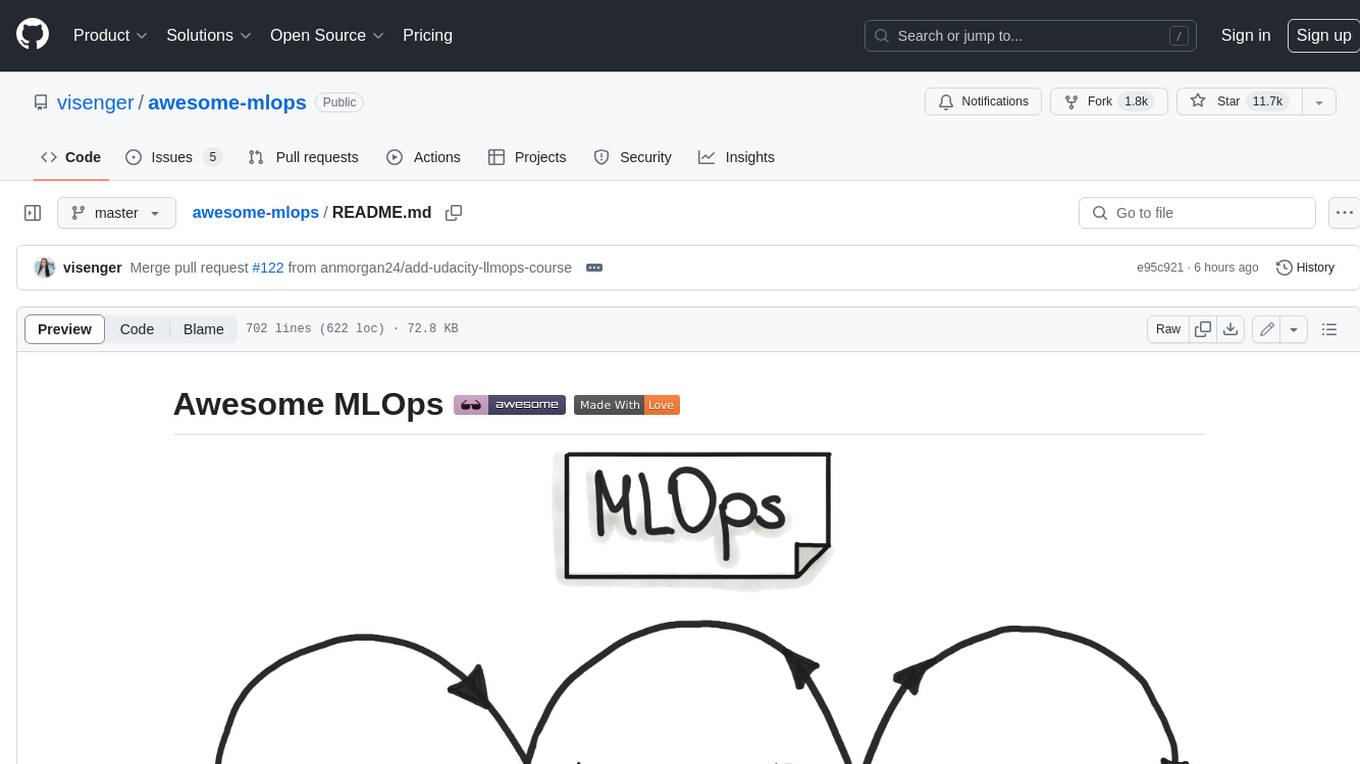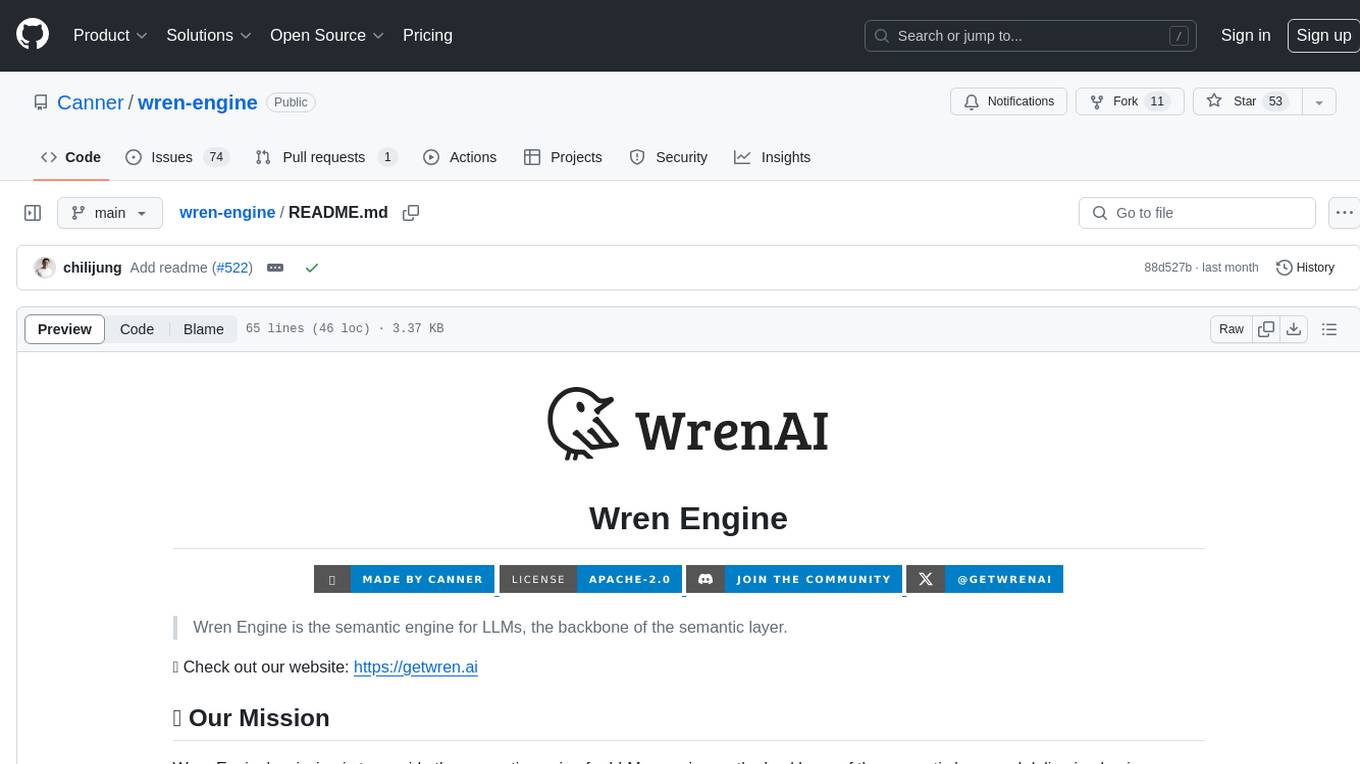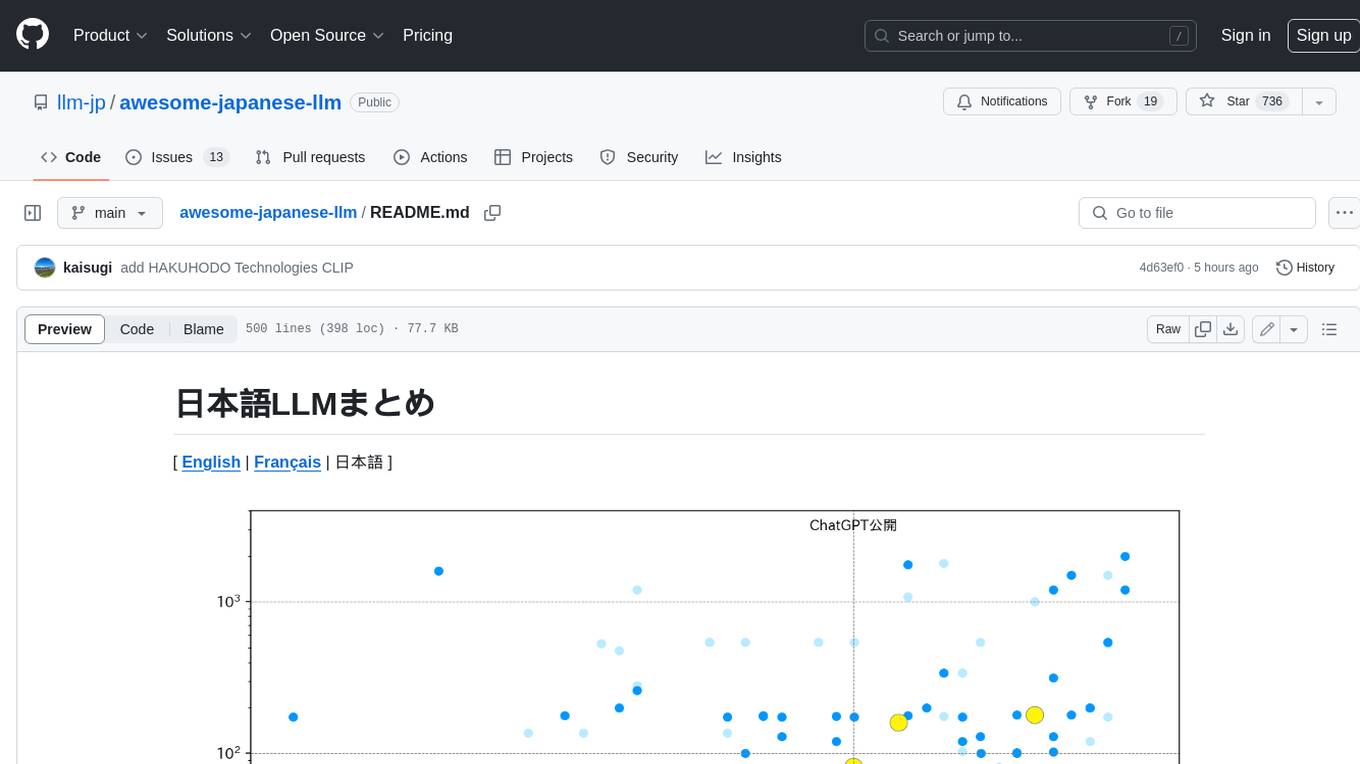AI tools for ai post
Related Tools:
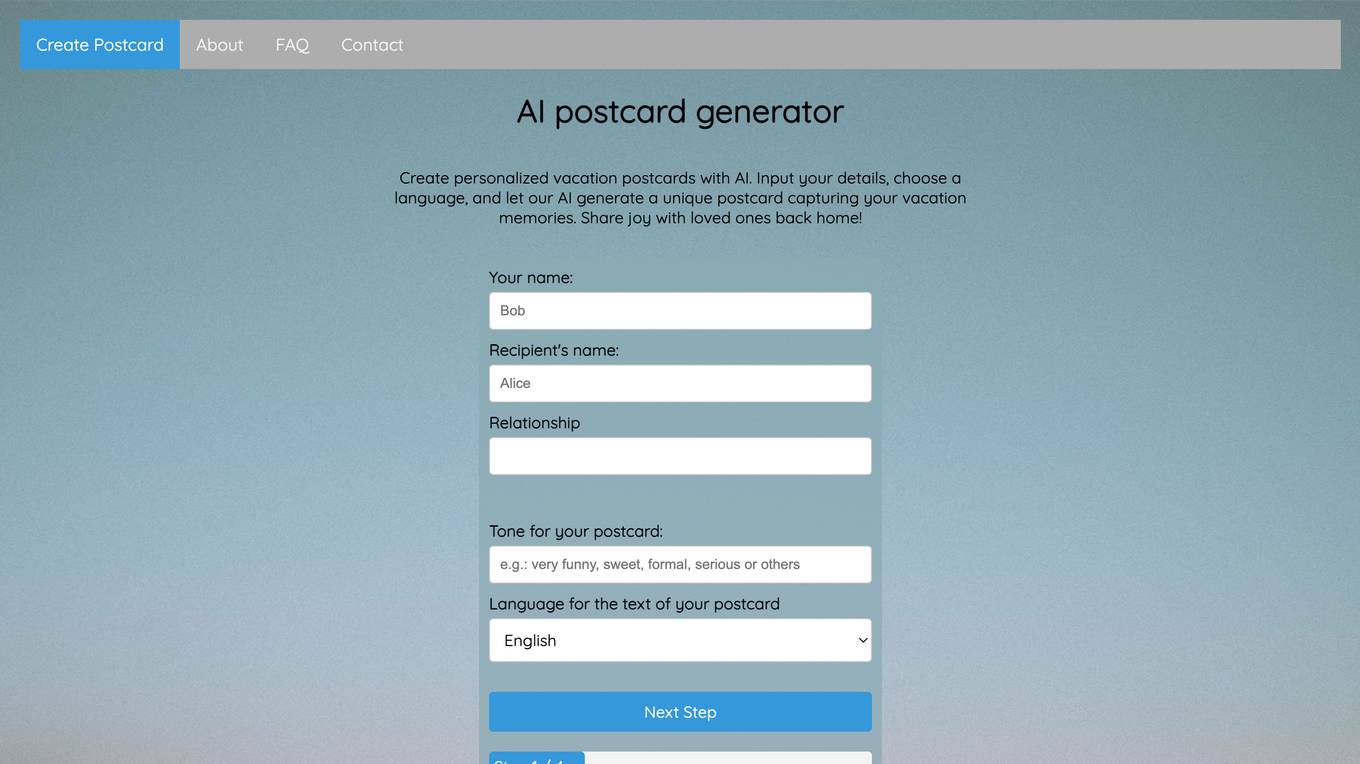
AI Postcard Generator
AI Postcard Generator is an online tool that allows users to create personalized postcards using artificial intelligence technology. Users can easily customize the design, layout, and text of the postcards to suit various occasions such as birthdays, holidays, and special events. The tool offers a wide range of templates, fonts, and graphics to choose from, making it simple for users to create unique and eye-catching postcards in just a few clicks. With its user-friendly interface and advanced AI algorithms, AI Postcard Generator is a convenient and efficient solution for sending heartfelt messages to loved ones.
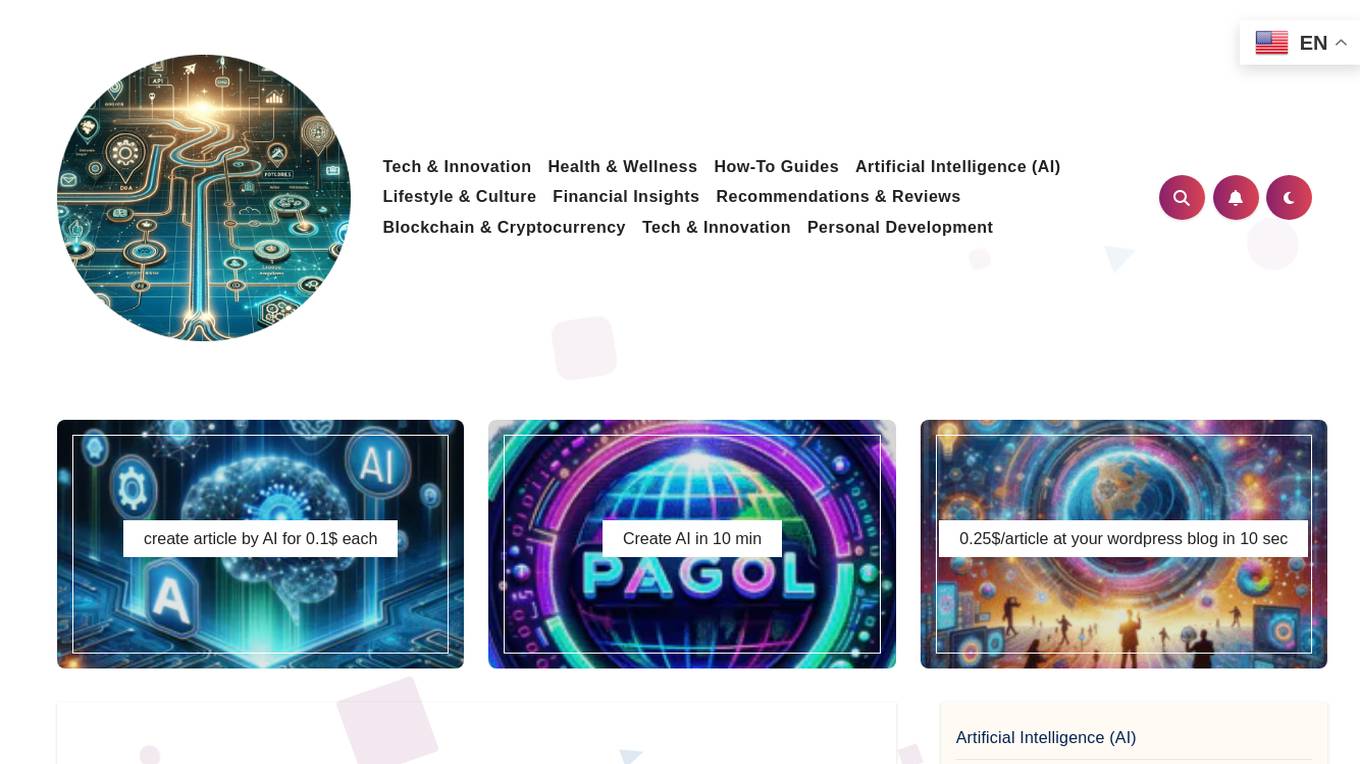
Wordpress AI
Wordpress AI is an AI-powered tool that generates bulk WordPress posts using artificial intelligence technology. It offers users the ability to create articles by AI for a low cost per article, as well as the option to generate bulk WordPress posts quickly and efficiently. The tool aims to streamline content creation processes for WordPress bloggers and website owners by leveraging AI capabilities.

AI BlogWiz
AI BlogWiz is an AI application designed to assist users in generating high-quality blog content efficiently. It offers a range of AI-powered tools such as Full Blog Generator, AI Image Creation, SEO Tools, and Trained Chat Bots. Users can create compelling blog articles, generate SEO keywords, and enhance their content with AI assistance. AI BlogWiz aims to streamline the content creation process and help users attract more traffic to their websites through AI-driven strategies.
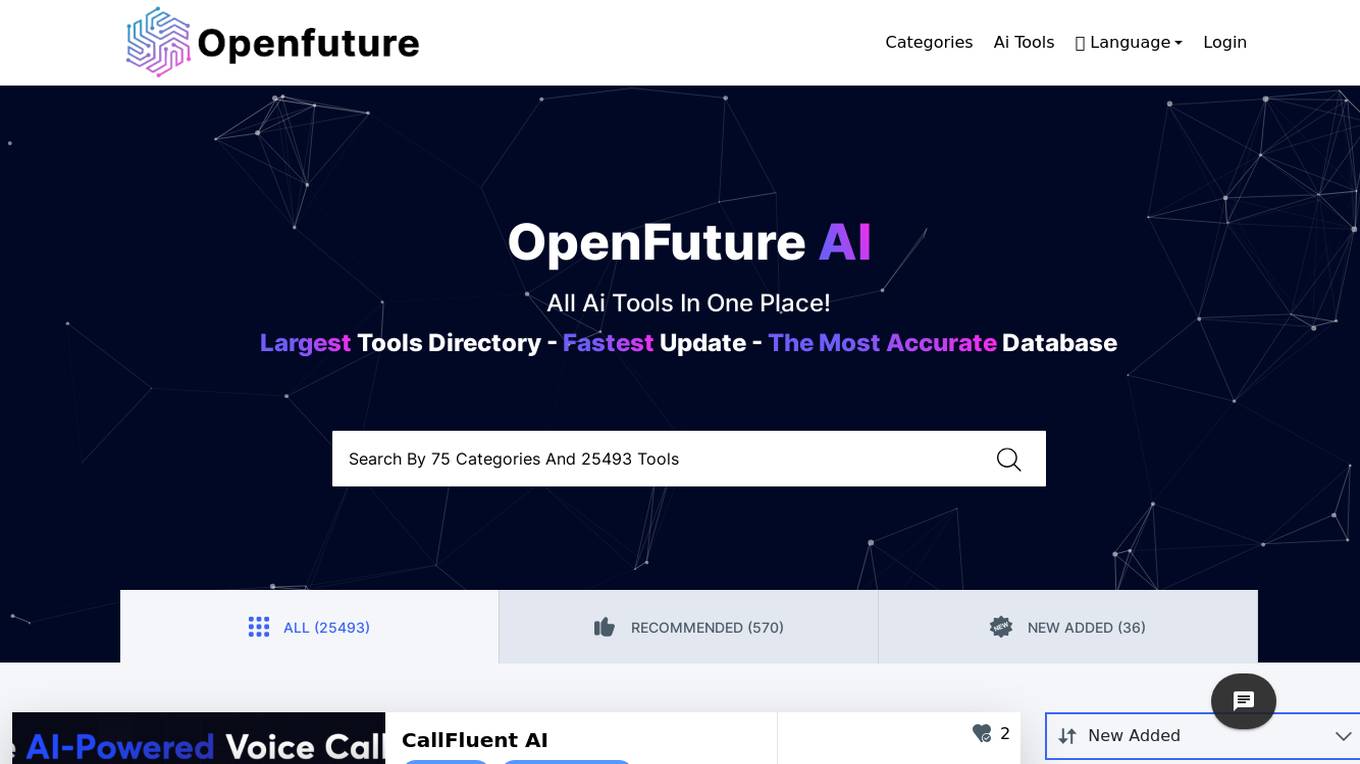
OpenFuture
OpenFuture is the world's largest AI Tools Directory in 2024, offering a comprehensive collection of AI applications across various categories such as 3D generator, aggregators, AI detection, art generator, audio editing, and more. Users can explore a wide range of AI-powered tools to enhance productivity, streamline tasks, and improve efficiency in different domains. The platform serves as a valuable resource for individuals and businesses looking to leverage artificial intelligence technology for various purposes.

Keyword Catcher
Keyword Catcher is a powerful SERP analysis and keyword research tool that makes it easy to gain actionable insights from Google results. With Keyword Catcher, you can quickly and easily generate hundreds of long-tail keywords, filter your results to only include the keywords that you know you can rank for, and get a comprehensive view of the SERPs to understand the dynamics of keyword rankings. Keyword Catcher also includes a number of AI-powered features, such as AI-generated post outlines, that can help you to create high-quality content that ranks well in search results.
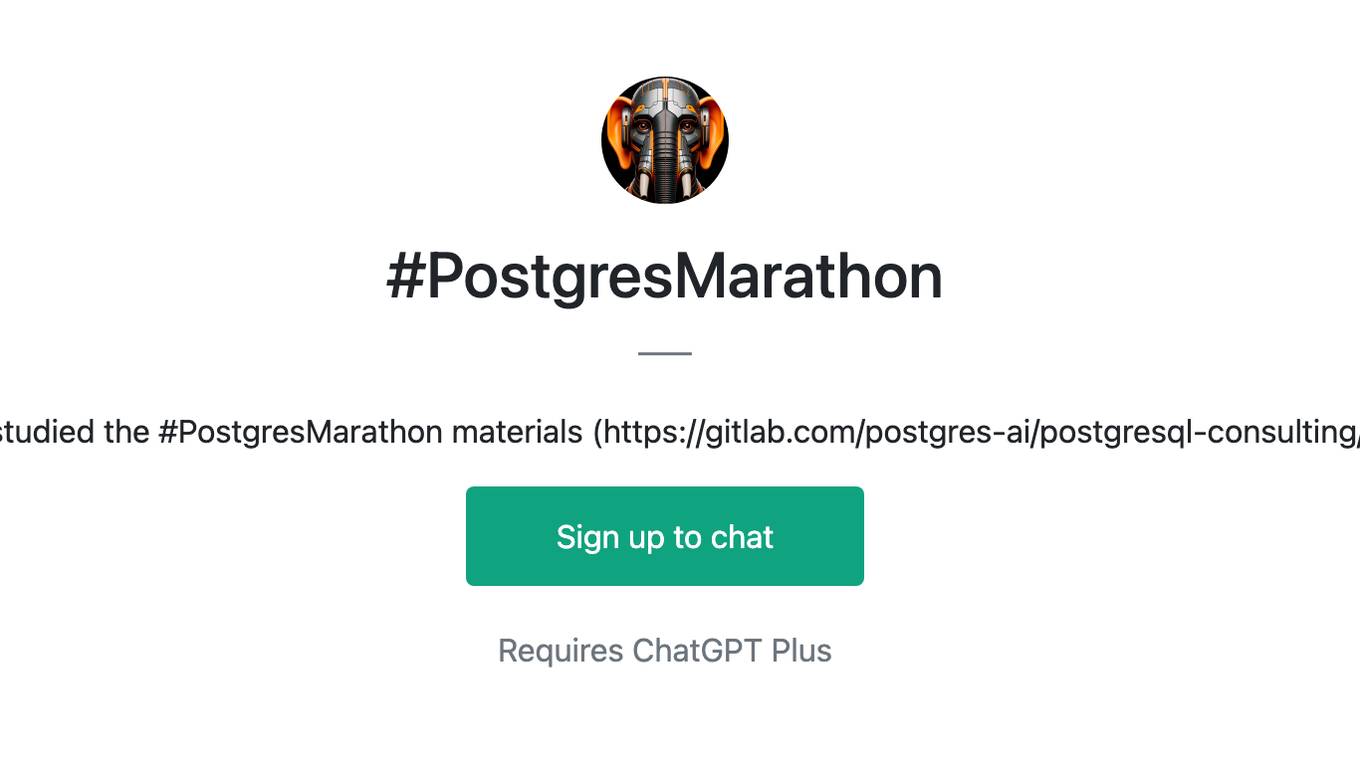
#PostgresMarathon
Postgres.ai bot that studied the #PostgresMarathon materials (https://gitlab.com/postgres-ai/postgresql-consulting/postgres-howtos/)
Film Director GPT
An acclaimed film director innovating storytelling through character focus and AI-enhanced post-production.
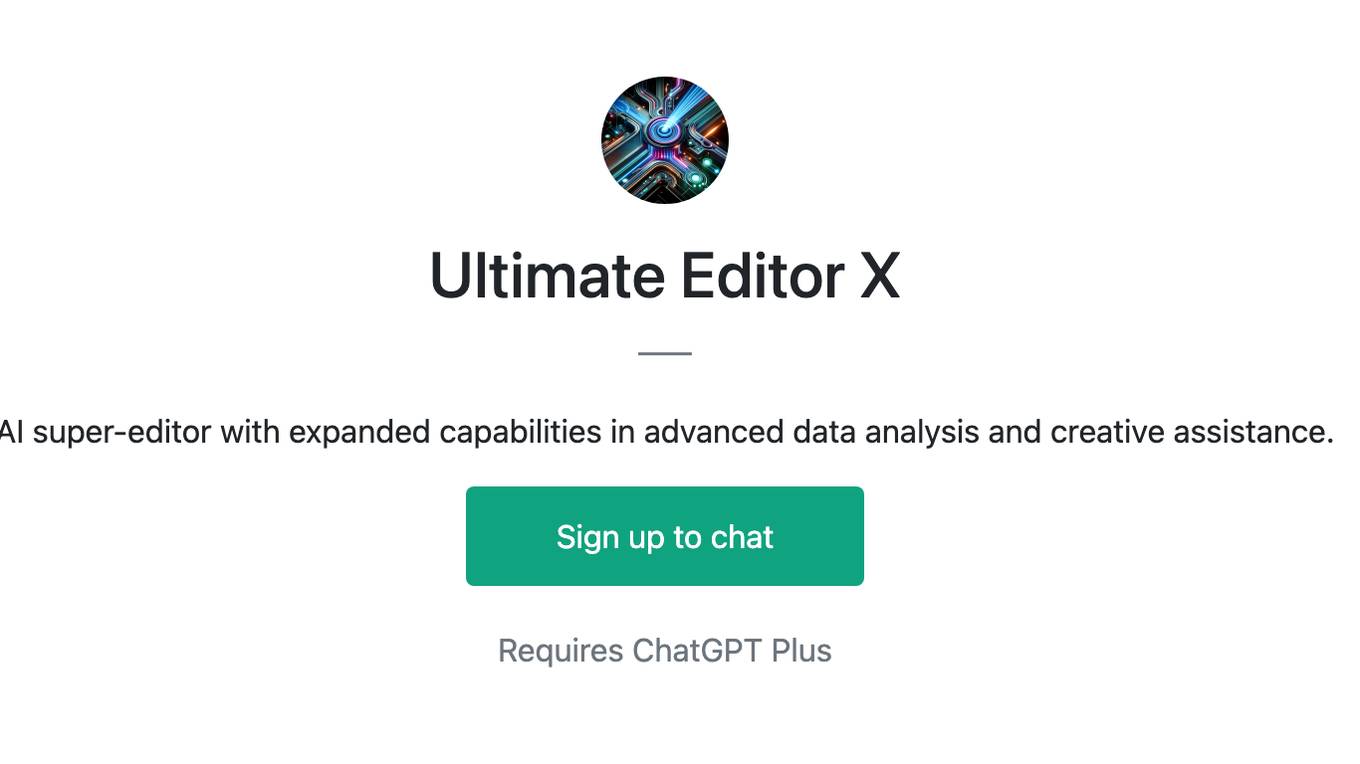
Ultimate Editor X
AI super-editor with expanded capabilities in advanced data analysis and creative assistance.
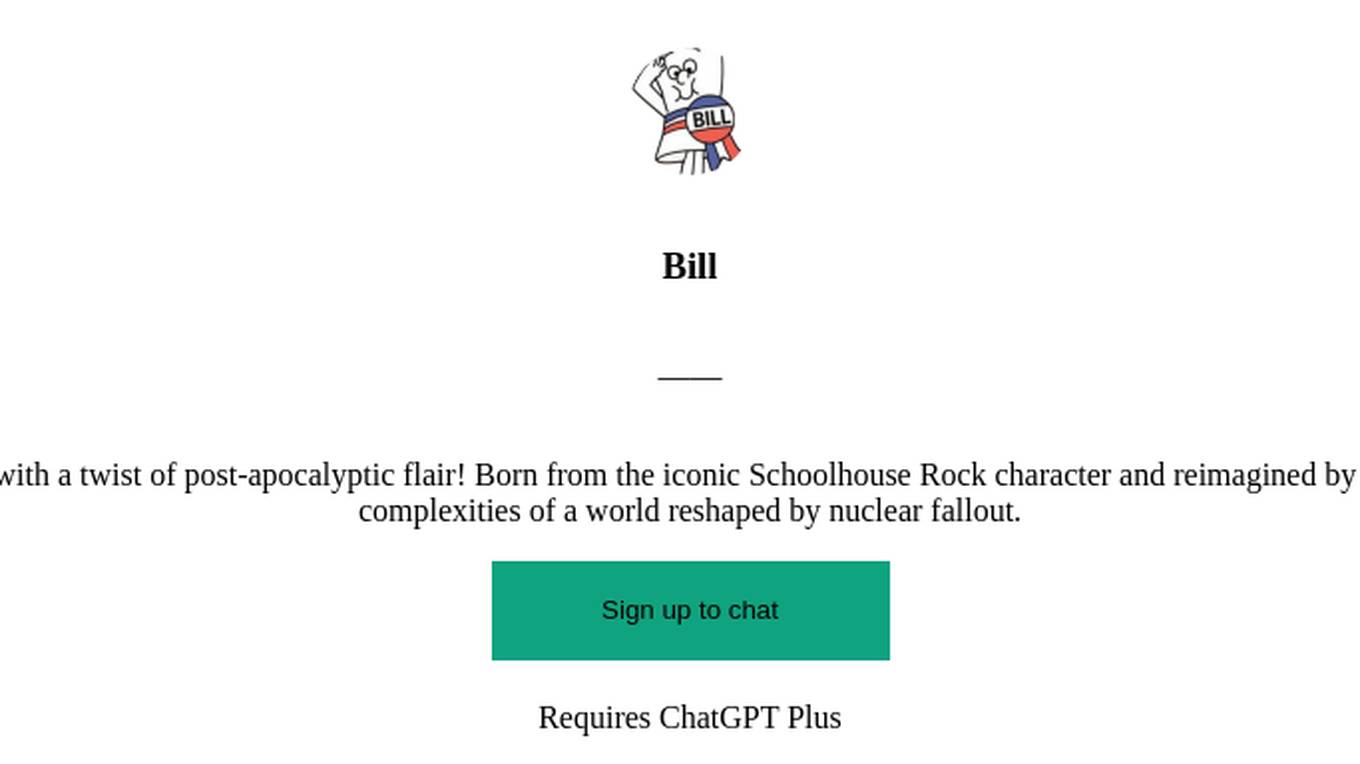
Bill
Meet Bill, the Enclave Educator, an AI chatbot with a twist of post-apocalyptic flair! Born from the iconic Schoolhouse Rock character and reimagined by the Enclave, Bill is here to guide you through the complexities of a world reshaped by nuclear fallout.
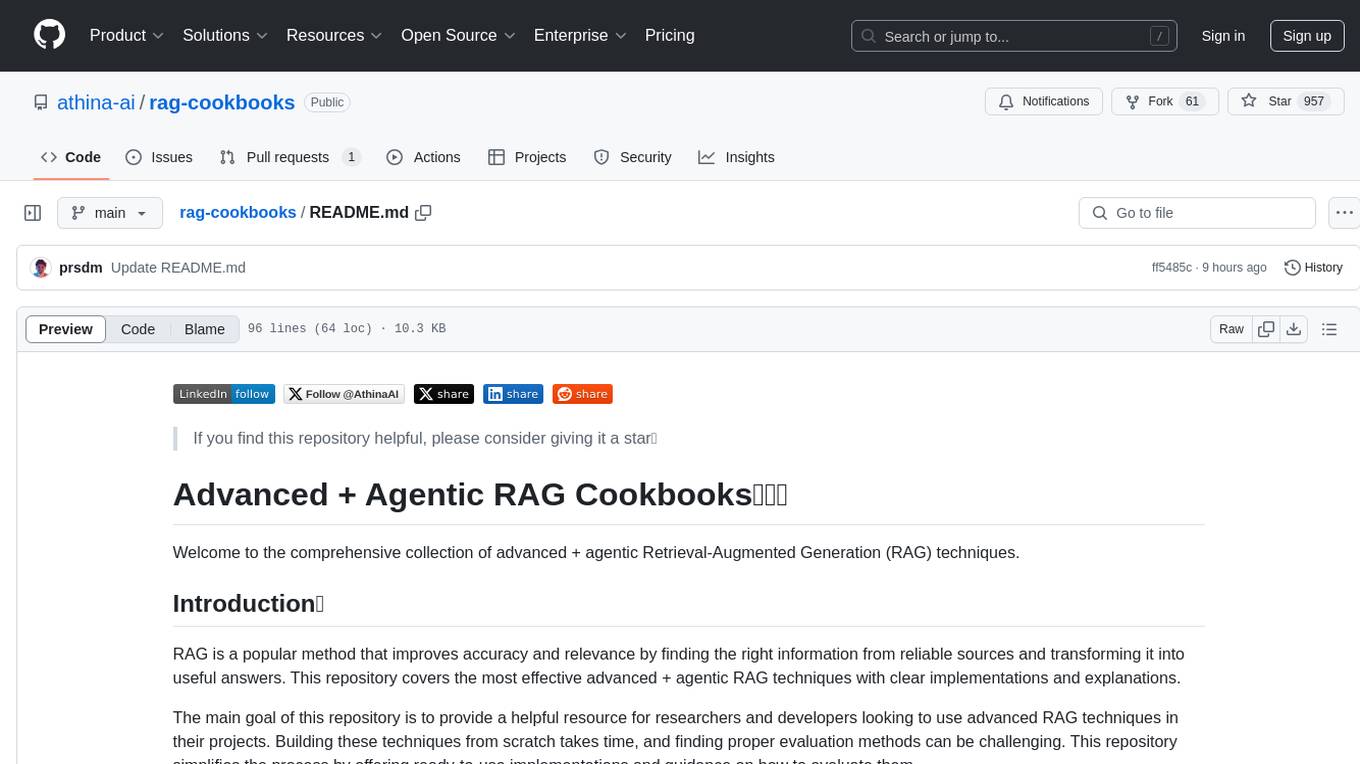
rag-cookbooks
Welcome to the comprehensive collection of advanced + agentic Retrieval-Augmented Generation (RAG) techniques. This repository covers the most effective advanced + agentic RAG techniques with clear implementations and explanations. It aims to provide a helpful resource for researchers and developers looking to use advanced RAG techniques in their projects, offering ready-to-use implementations and guidance on evaluation methods. The RAG framework addresses limitations of Large Language Models by using external documents for in-context learning, ensuring contextually relevant and accurate responses. The repository includes detailed descriptions of various RAG techniques, tools used, and implementation guidance for each technique.
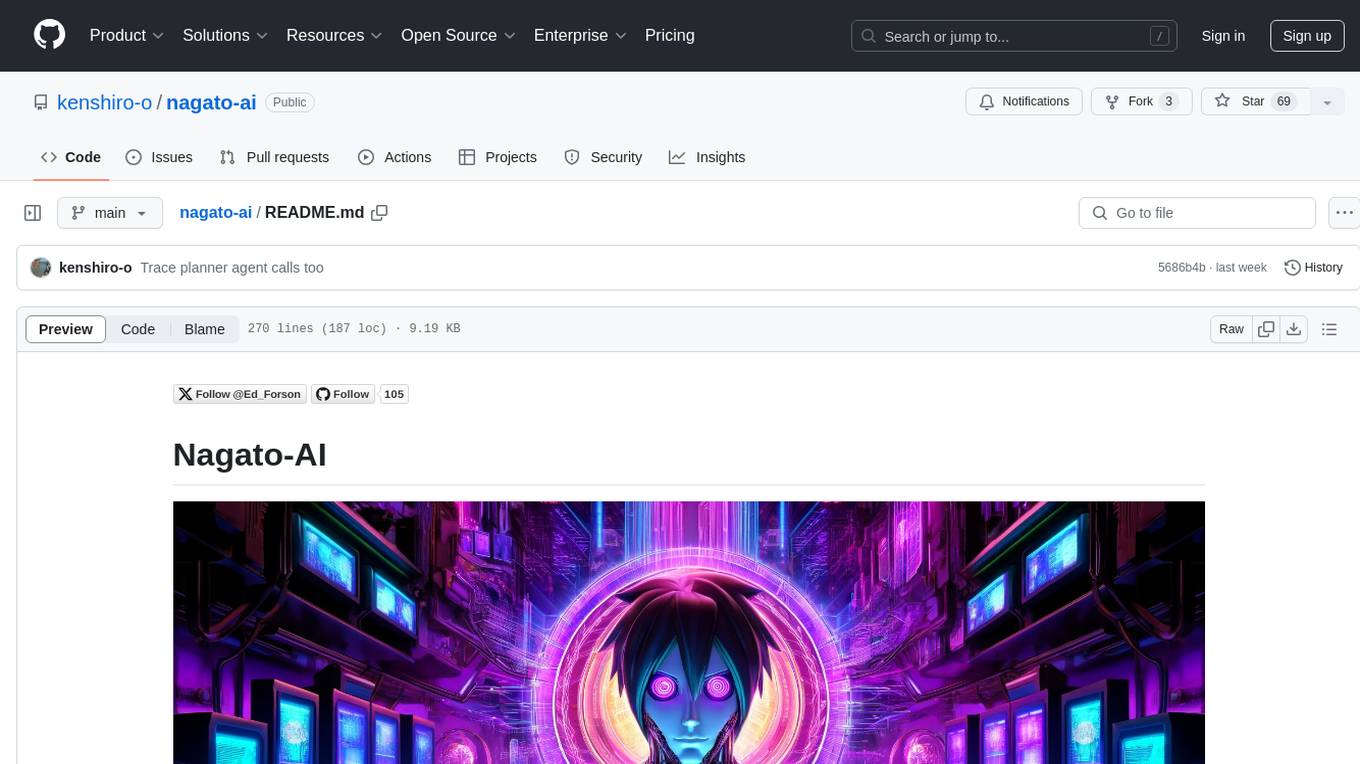
nagato-ai
Nagato-AI is an intuitive AI Agent library that supports multiple LLMs including OpenAI's GPT, Anthropic's Claude, Google's Gemini, and Groq LLMs. Users can create agents from these models and combine them to build an effective AI Agent system. The library is named after the powerful ninja Nagato from the anime Naruto, who can control multiple bodies with different abilities. Nagato-AI acts as a linchpin to summon and coordinate AI Agents for specific missions. It provides flexibility in programming and supports tools like Coordinator, Researcher, Critic agents, and HumanConfirmInputTool.
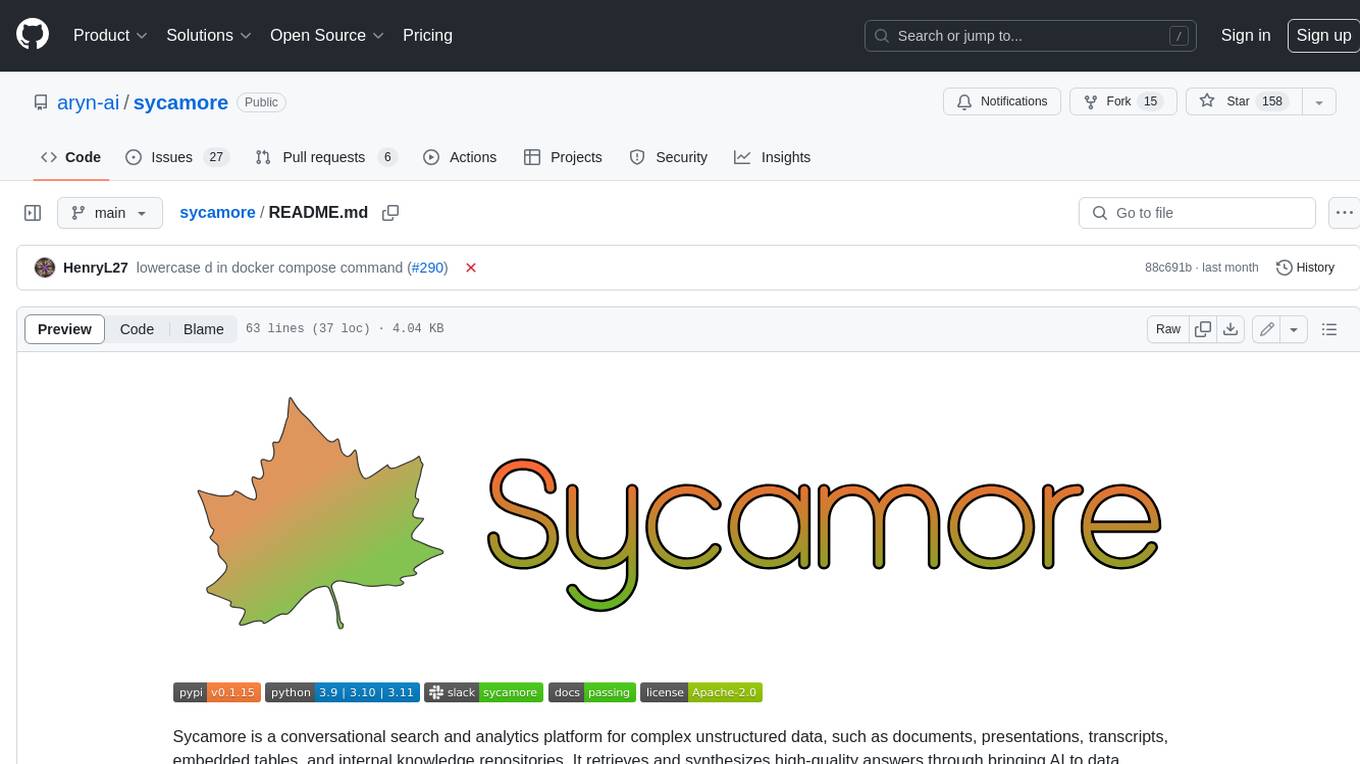
sycamore
Sycamore is a conversational search and analytics platform for complex unstructured data, such as documents, presentations, transcripts, embedded tables, and internal knowledge repositories. It retrieves and synthesizes high-quality answers through bringing AI to data preparation, indexing, and retrieval. Sycamore makes it easy to prepare unstructured data for search and analytics, providing a toolkit for data cleaning, information extraction, enrichment, summarization, and generation of vector embeddings that encapsulate the semantics of data. Sycamore uses your choice of generative AI models to make these operations simple and effective, and it enables quick experimentation and iteration. Additionally, Sycamore uses OpenSearch for indexing, enabling hybrid (vector + keyword) search, retrieval-augmented generation (RAG) pipelining, filtering, analytical functions, conversational memory, and other features to improve information retrieval.

gpt4all
GPT4All is an ecosystem to run powerful and customized large language models that work locally on consumer grade CPUs and any GPU. Note that your CPU needs to support AVX or AVX2 instructions. Learn more in the documentation. A GPT4All model is a 3GB - 8GB file that you can download and plug into the GPT4All open-source ecosystem software. Nomic AI supports and maintains this software ecosystem to enforce quality and security alongside spearheading the effort to allow any person or enterprise to easily train and deploy their own on-edge large language models.
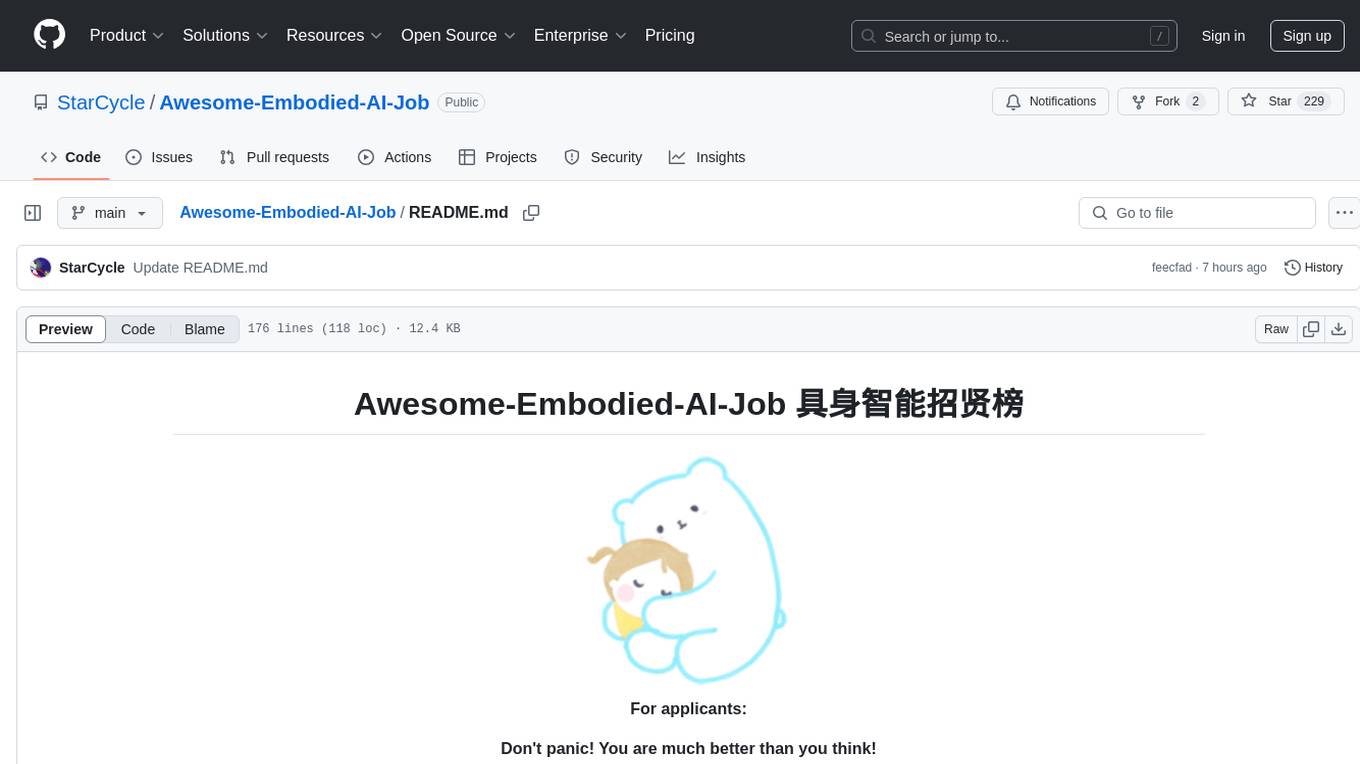
Awesome-Embodied-AI-Job
Awesome Embodied AI Job is a curated list of resources related to jobs in the field of Embodied Artificial Intelligence. It includes job boards, companies hiring, and resources for job seekers interested in roles such as robotics engineer, computer vision specialist, AI researcher, machine learning engineer, and data scientist.
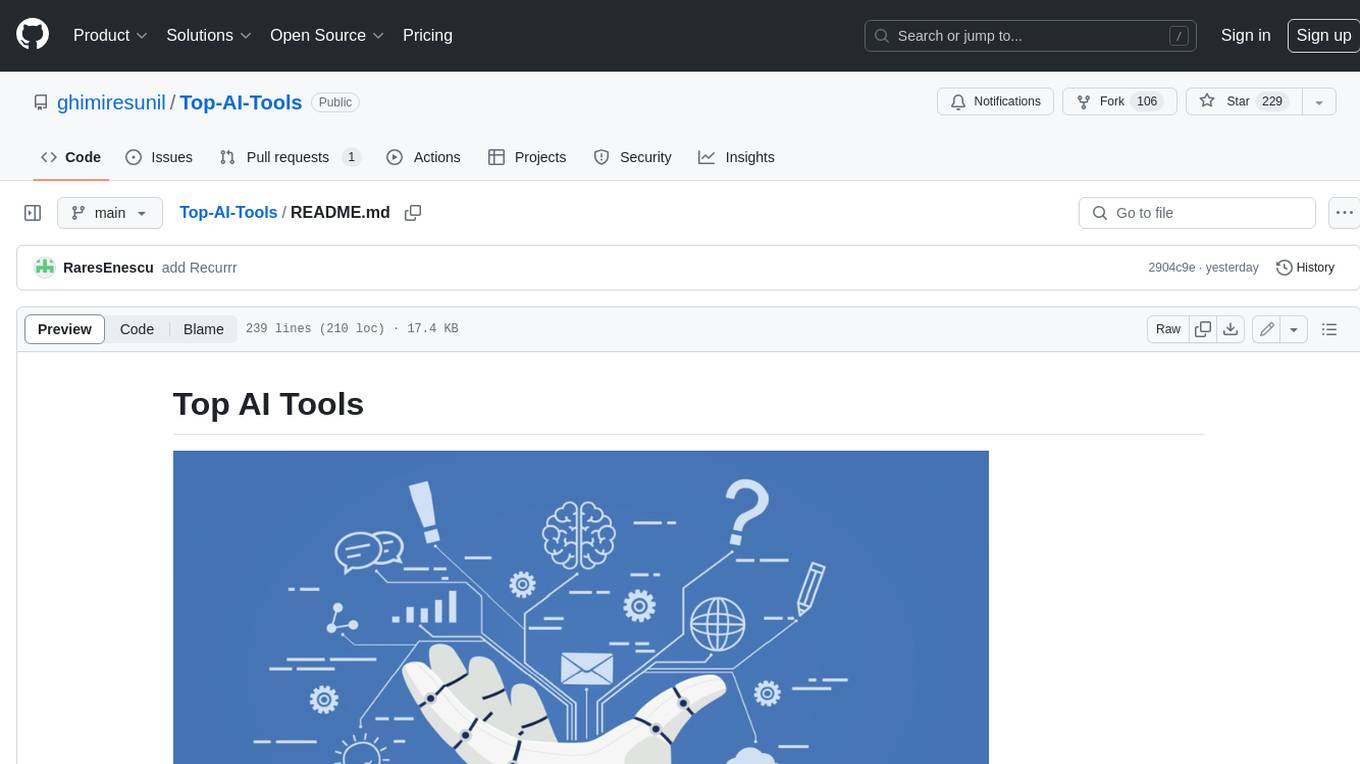
Top-AI-Tools
Top AI Tools is a comprehensive, community-curated directory that aims to catalog and showcase the most outstanding AI-powered products. This index is not exhaustive, but rather a compilation of our research and contributions from the community.
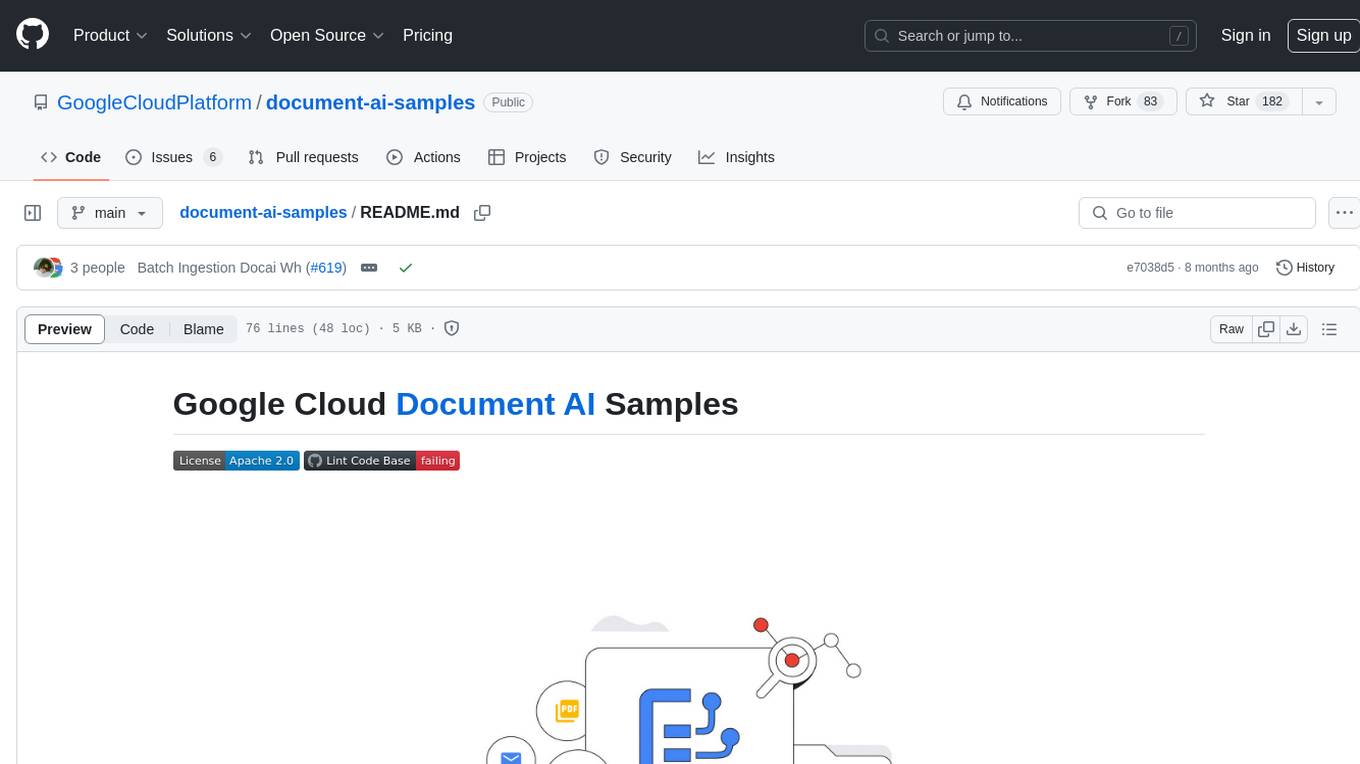
document-ai-samples
The Google Cloud Document AI Samples repository contains code samples and Community Samples demonstrating how to analyze, classify, and search documents using Google Cloud Document AI. It includes various projects showcasing different functionalities such as integrating with Google Drive, processing documents using Python, content moderation with Dialogflow CX, fraud detection, language extraction, paper summarization, tax processing pipeline, and more. The repository also provides access to test document files stored in a publicly-accessible Google Cloud Storage Bucket. Additionally, there are codelabs available for optical character recognition (OCR), form parsing, specialized processors, and managing Document AI processors. Community samples, like the PDF Annotator Sample, are also included. Contributions are welcome, and users can seek help or report issues through the repository's issues page. Please note that this repository is not an officially supported Google product and is intended for demonstrative purposes only.
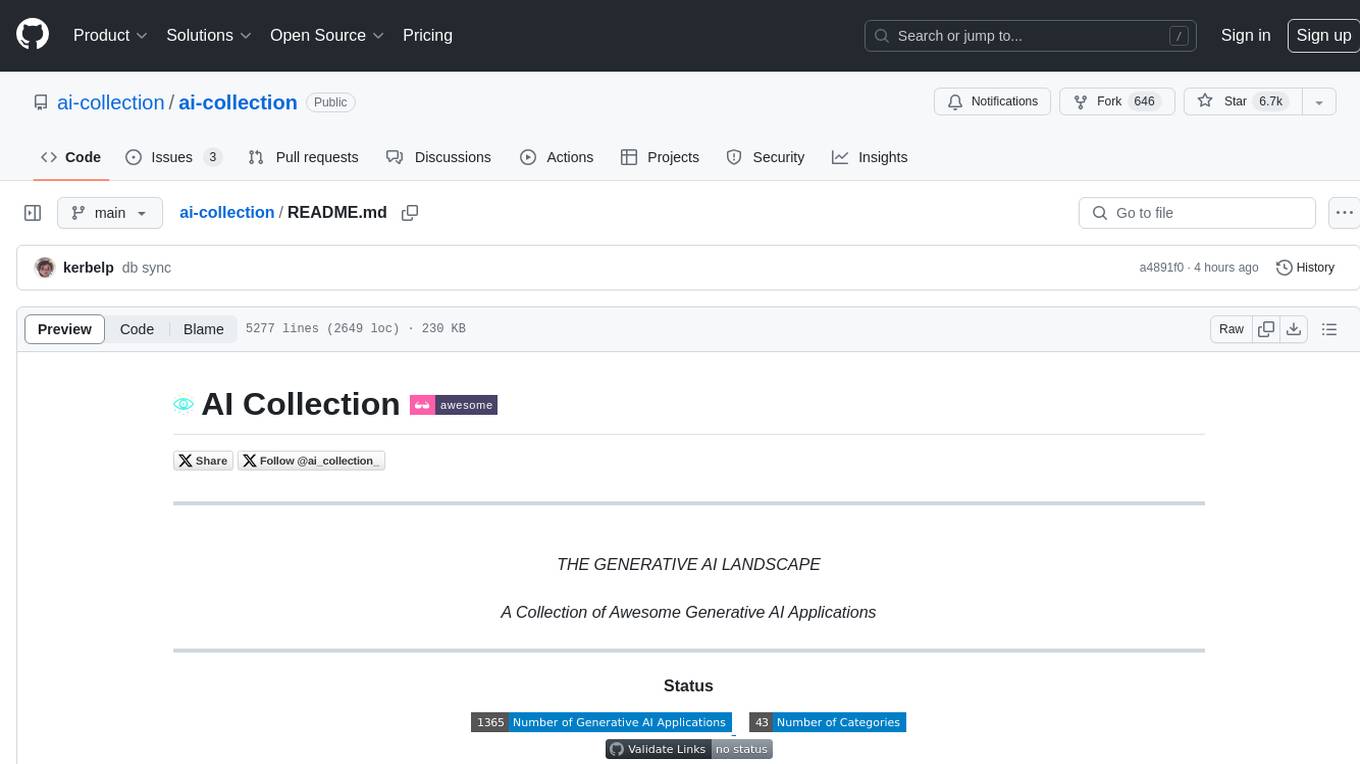
ai-collection
The ai-collection repository is a collection of various artificial intelligence projects and tools aimed at helping developers and researchers in the field of AI. It includes implementations of popular AI algorithms, datasets for training machine learning models, and resources for learning AI concepts. The repository serves as a valuable resource for anyone interested in exploring the applications of artificial intelligence in different domains.
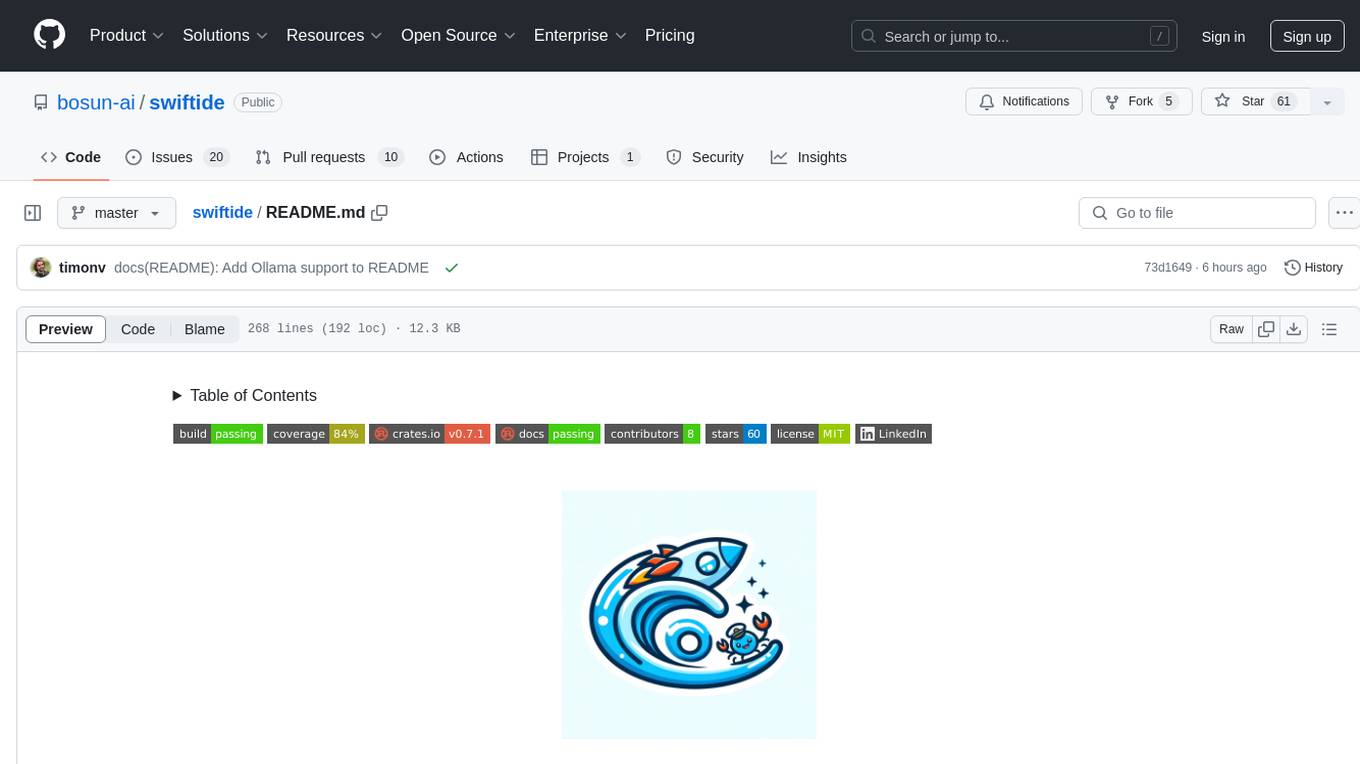
swiftide
Swiftide is a fast, streaming indexing and query library tailored for Retrieval Augmented Generation (RAG) in AI applications. It is built in Rust, utilizing parallel, asynchronous streams for blazingly fast performance. With Swiftide, users can easily build AI applications from idea to production in just a few lines of code. The tool addresses frustrations around performance, stability, and ease of use encountered while working with Python-based tooling. It offers features like fast streaming indexing pipeline, experimental query pipeline, integrations with various platforms, loaders, transformers, chunkers, embedders, and more. Swiftide aims to provide a platform for data indexing and querying to advance the development of automated Large Language Model (LLM) applications.
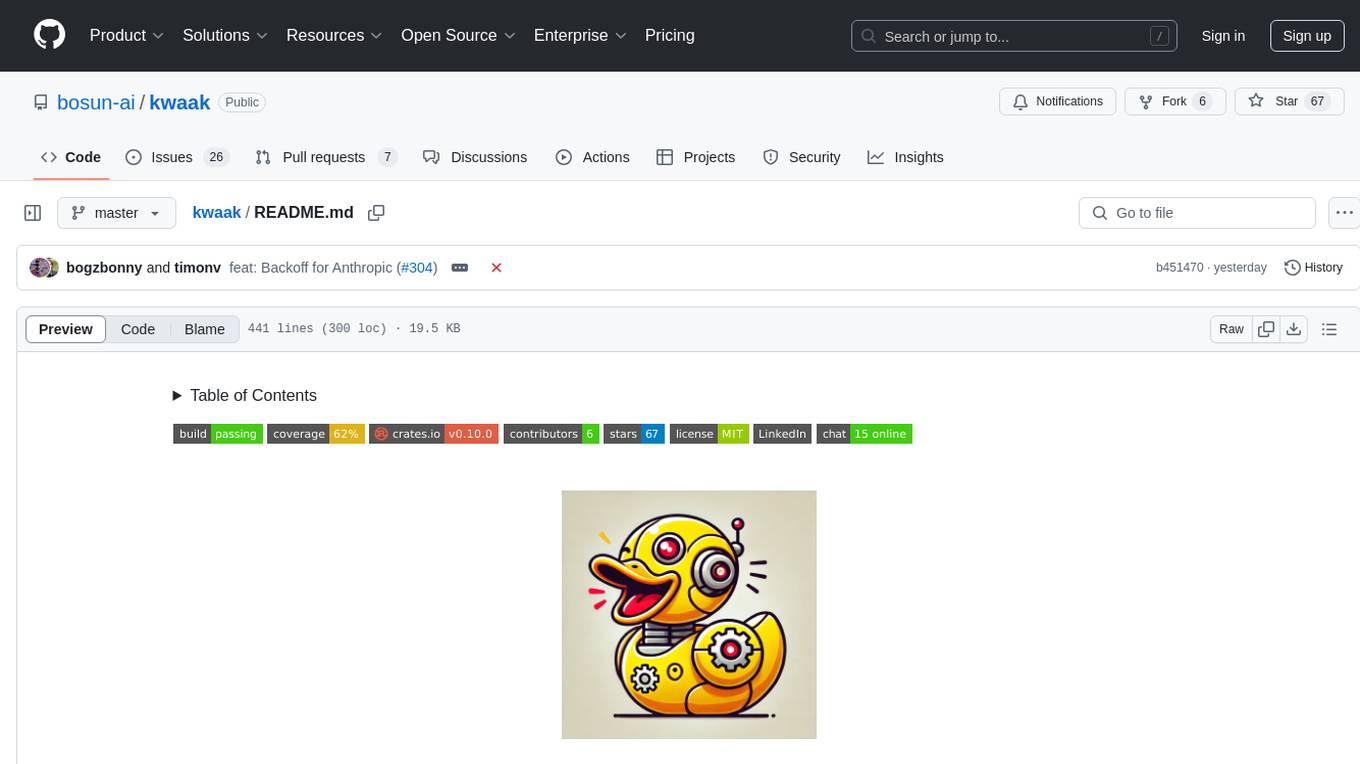
kwaak
Kwaak is a tool that allows users to run a team of autonomous AI agents locally from their own machine. It enables users to write code, improve test coverage, update documentation, and enhance code quality while focusing on building innovative projects. Kwaak is designed to run multiple agents in parallel, interact with codebases, answer questions about code, find examples, write and execute code, create pull requests, and more. It is free and open-source, allowing users to bring their own API keys or models via Ollama. Kwaak is part of the bosun.ai project, aiming to be a platform for autonomous code improvement.
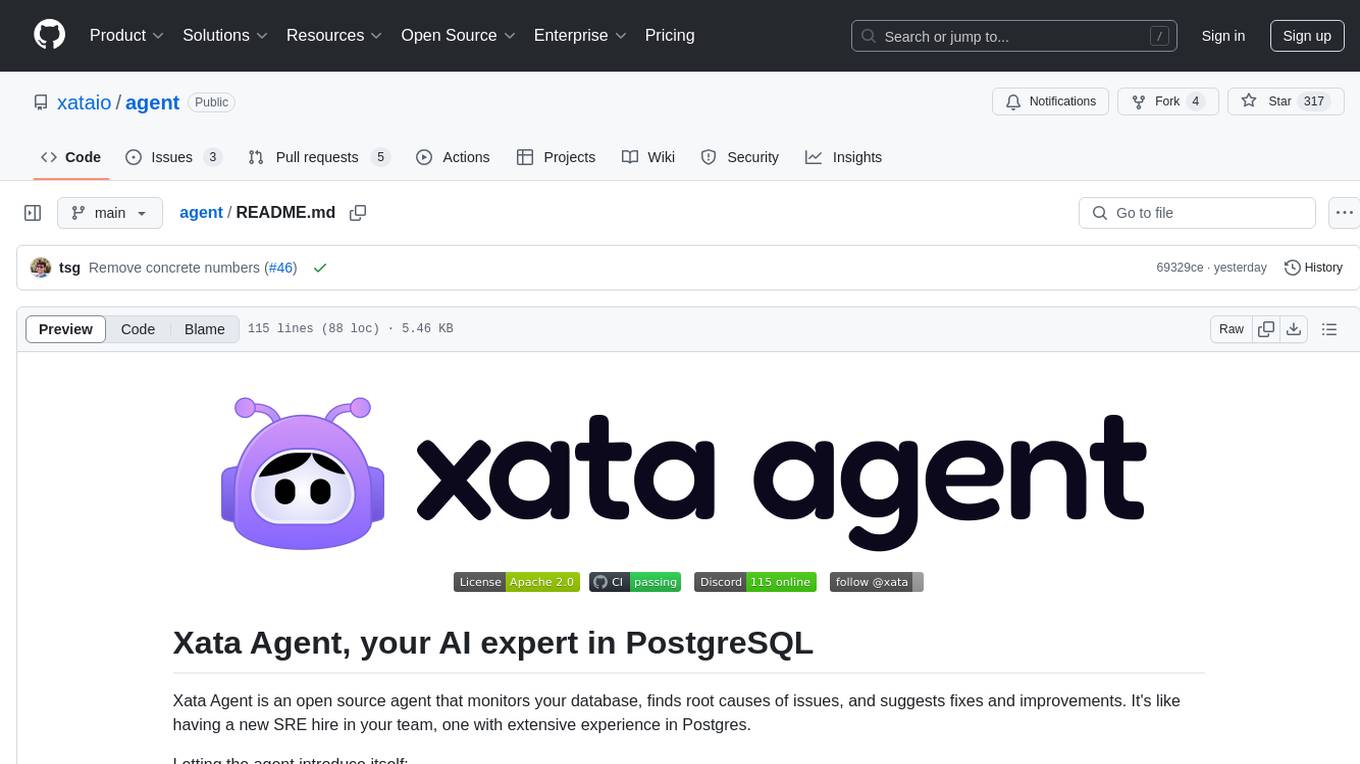
agent
Xata Agent is an open source tool designed to monitor PostgreSQL databases, identify issues, and provide recommendations for improvements. It acts as an AI expert, offering proactive suggestions for configuration tuning, troubleshooting performance issues, and common database problems. The tool is extensible, supports monitoring from cloud services like RDS & Aurora, and uses preset SQL commands to ensure database safety. Xata Agent can run troubleshooting statements, notify users of issues via Slack, and supports multiple AI models for enhanced functionality. It is actively used by the Xata team to manage Postgres databases efficiently.
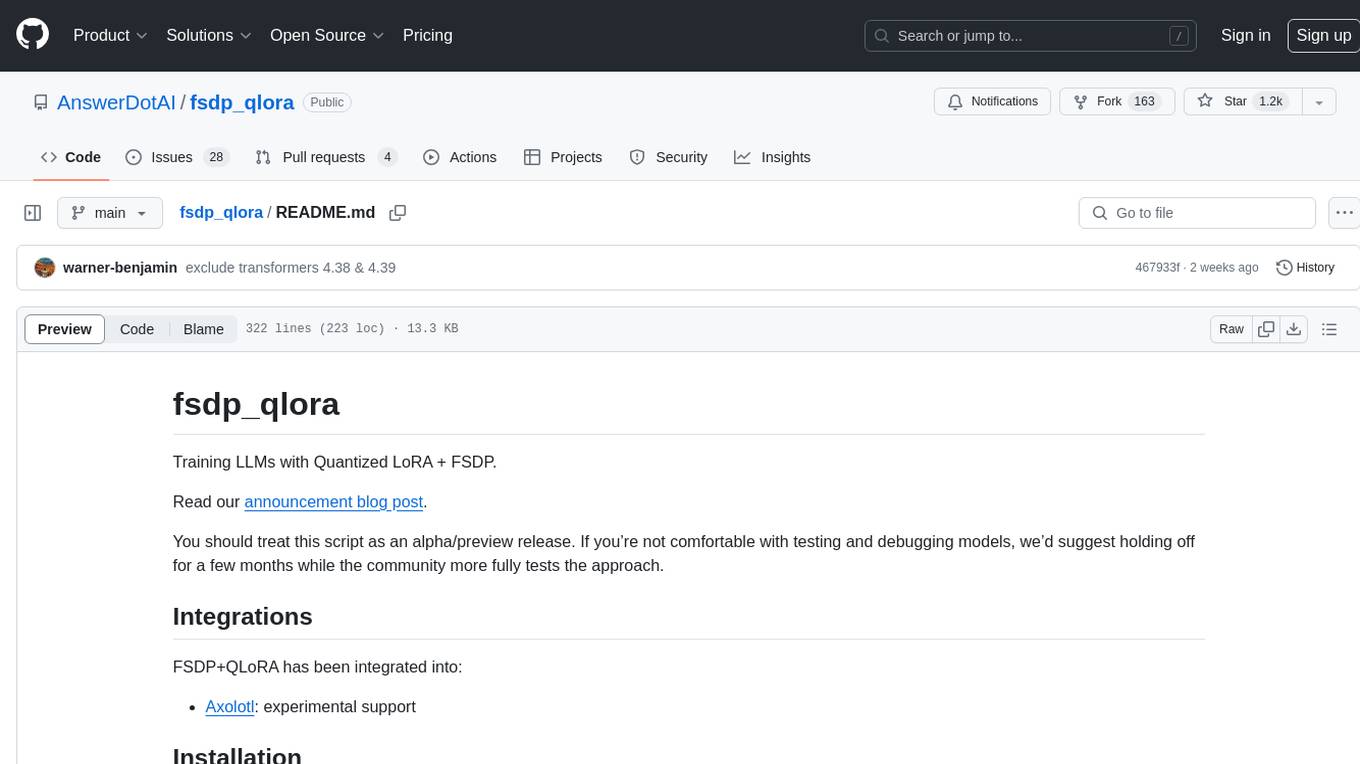
fsdp_qlora
The fsdp_qlora repository provides a script for training Large Language Models (LLMs) with Quantized LoRA and Fully Sharded Data Parallelism (FSDP). It integrates FSDP+QLoRA into the Axolotl platform and offers installation instructions for dependencies like llama-recipes, fastcore, and PyTorch. Users can finetune Llama-2 70B on Dual 24GB GPUs using the provided command. The script supports various training options including full params fine-tuning, LoRA fine-tuning, custom LoRA fine-tuning, quantized LoRA fine-tuning, and more. It also discusses low memory loading, mixed precision training, and comparisons to existing trainers. The repository addresses limitations and provides examples for training with different configurations, including BnB QLoRA and HQQ QLoRA. Additionally, it offers SLURM training support and instructions for adding support for a new model.
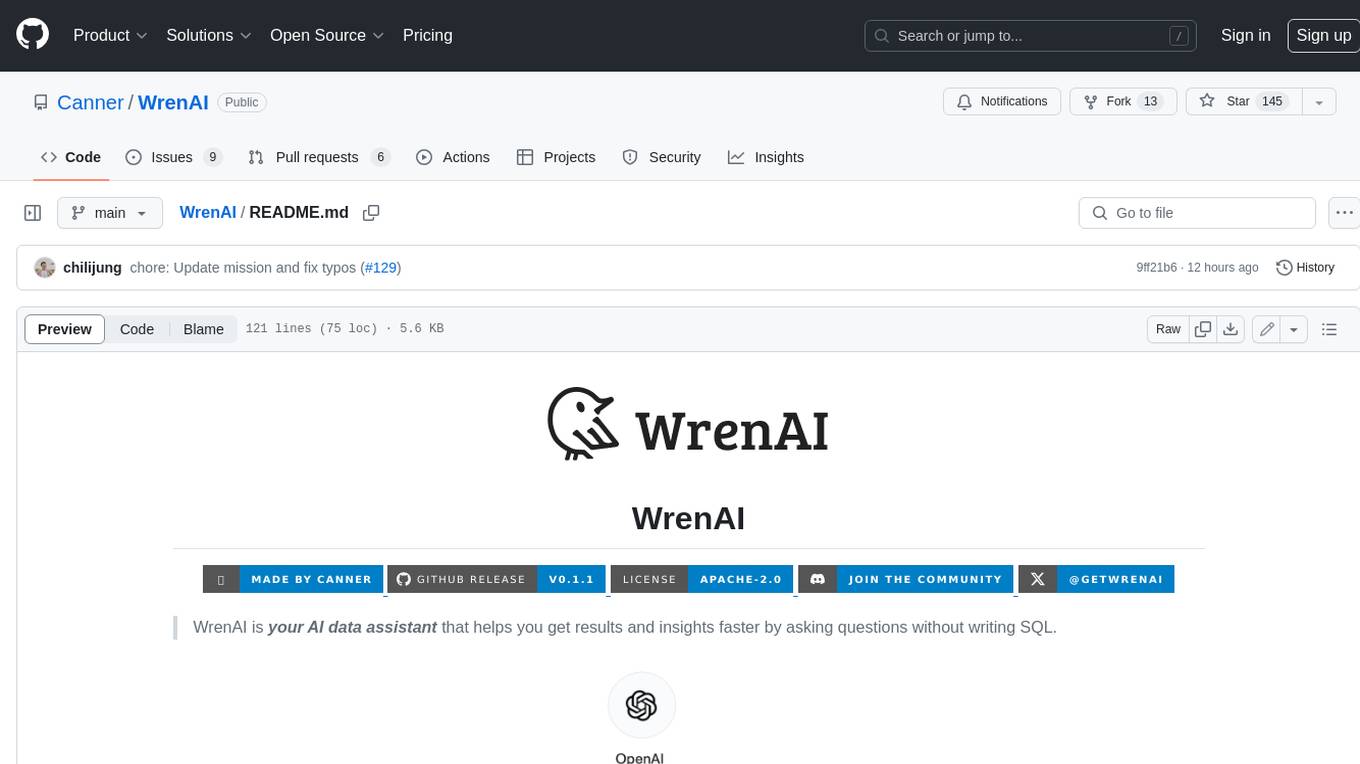
WrenAI
WrenAI is a data assistant tool that helps users get results and insights faster by asking questions in natural language, without writing SQL. It leverages Large Language Models (LLM) with Retrieval-Augmented Generation (RAG) technology to enhance comprehension of internal data. Key benefits include fast onboarding, secure design, and open-source availability. WrenAI consists of three core services: Wren UI (intuitive user interface), Wren AI Service (processes queries using a vector database), and Wren Engine (platform backbone). It is currently in alpha version, with new releases planned biweekly.
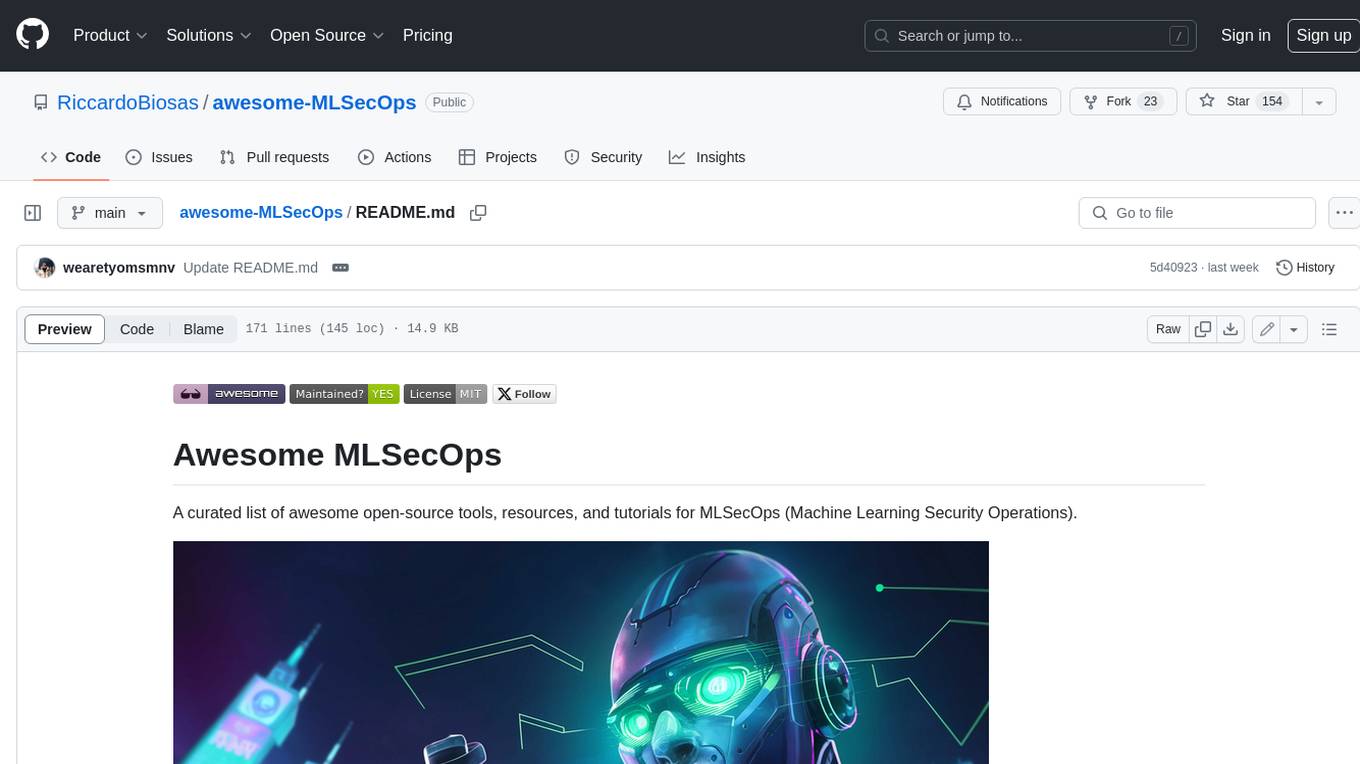
awesome-MLSecOps
Awesome MLSecOps is a curated list of open-source tools, resources, and tutorials for MLSecOps (Machine Learning Security Operations). It includes a wide range of security tools and libraries for protecting machine learning models against adversarial attacks, as well as resources for AI security, data anonymization, model security, and more. The repository aims to provide a comprehensive collection of tools and information to help users secure their machine learning systems and infrastructure.
